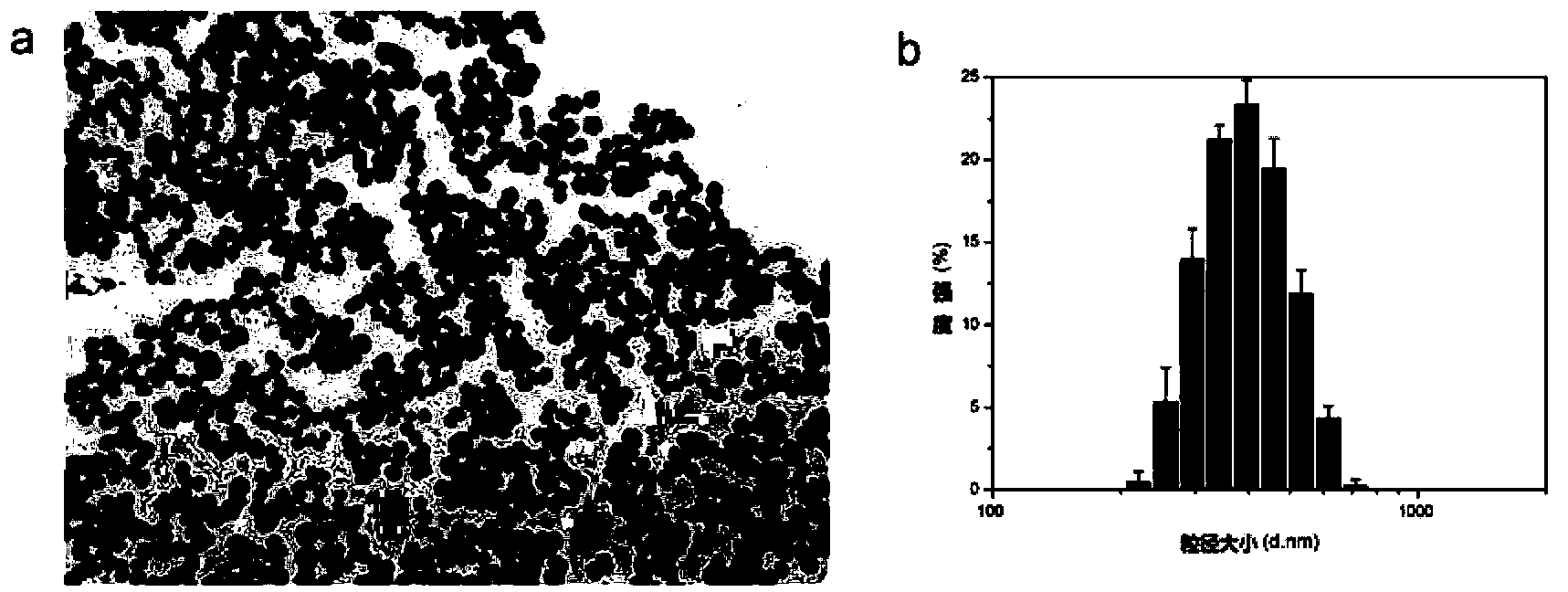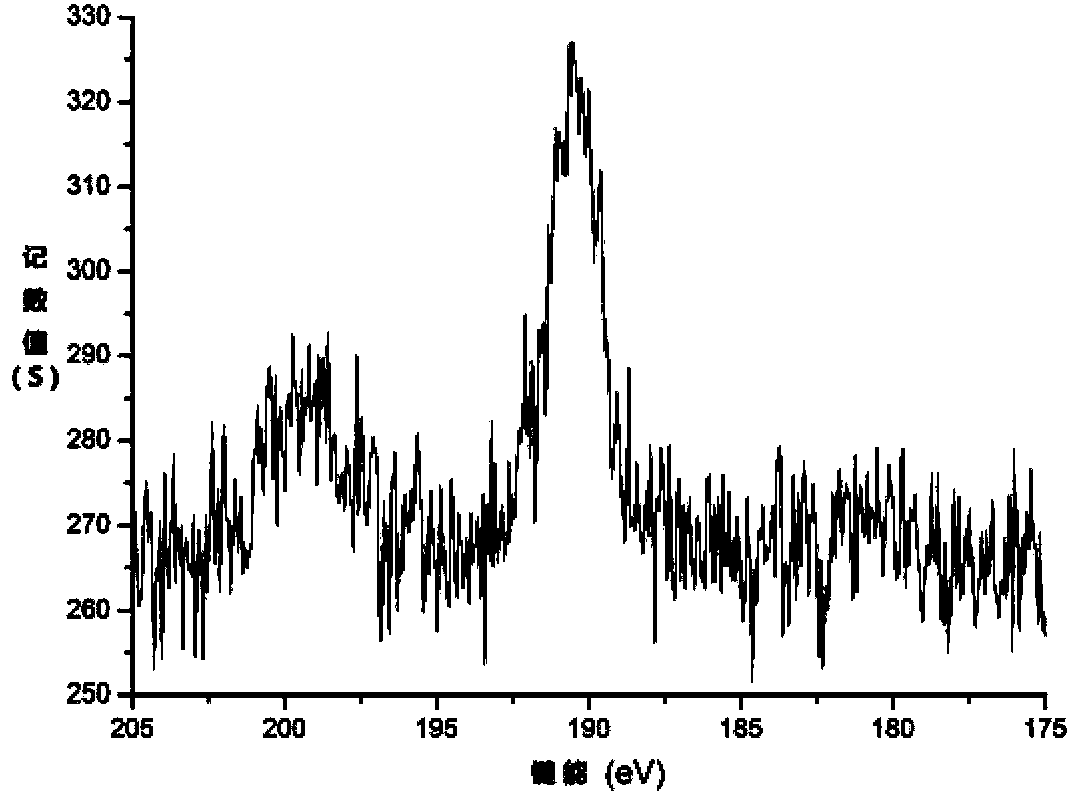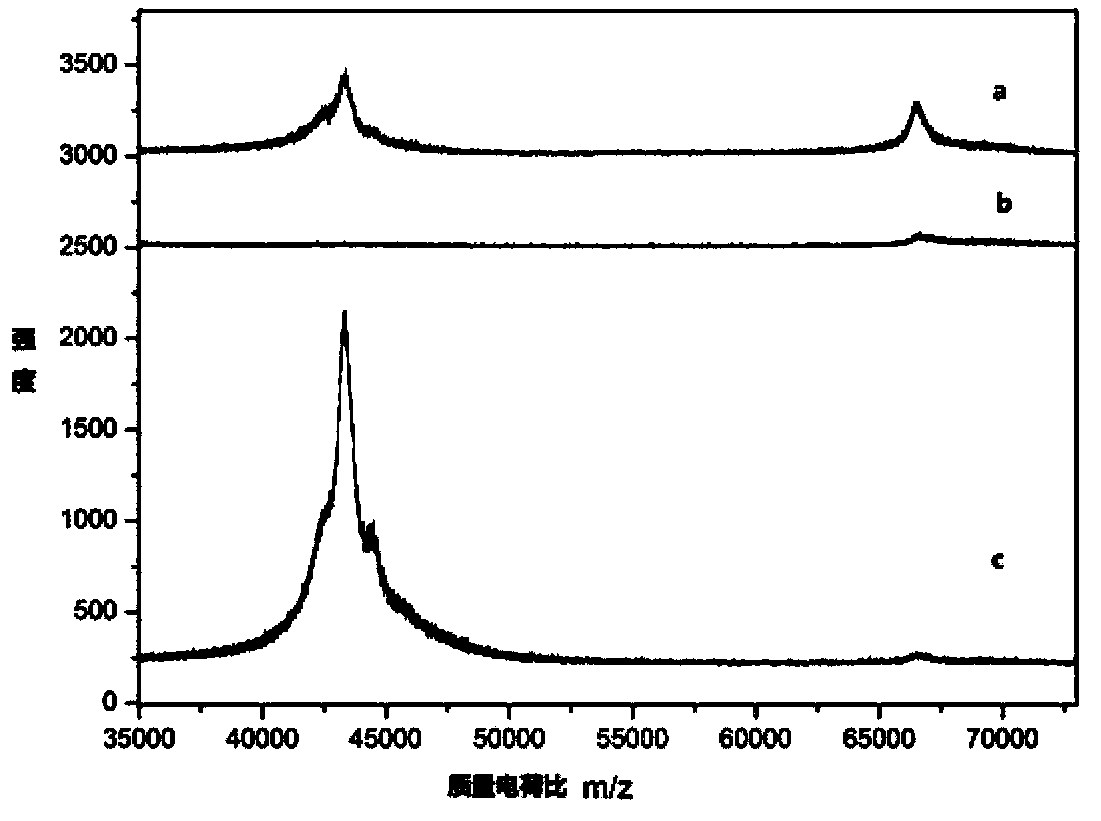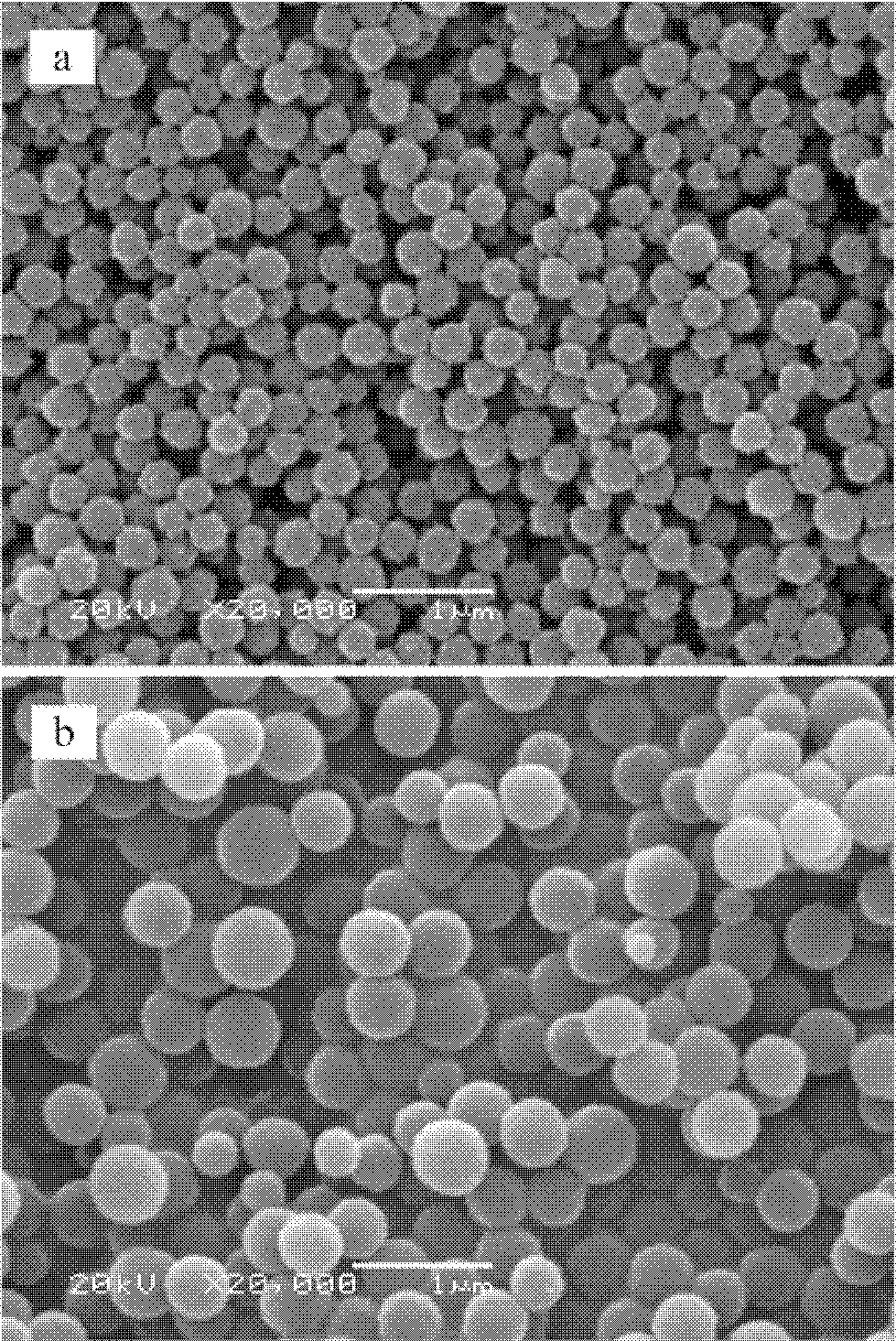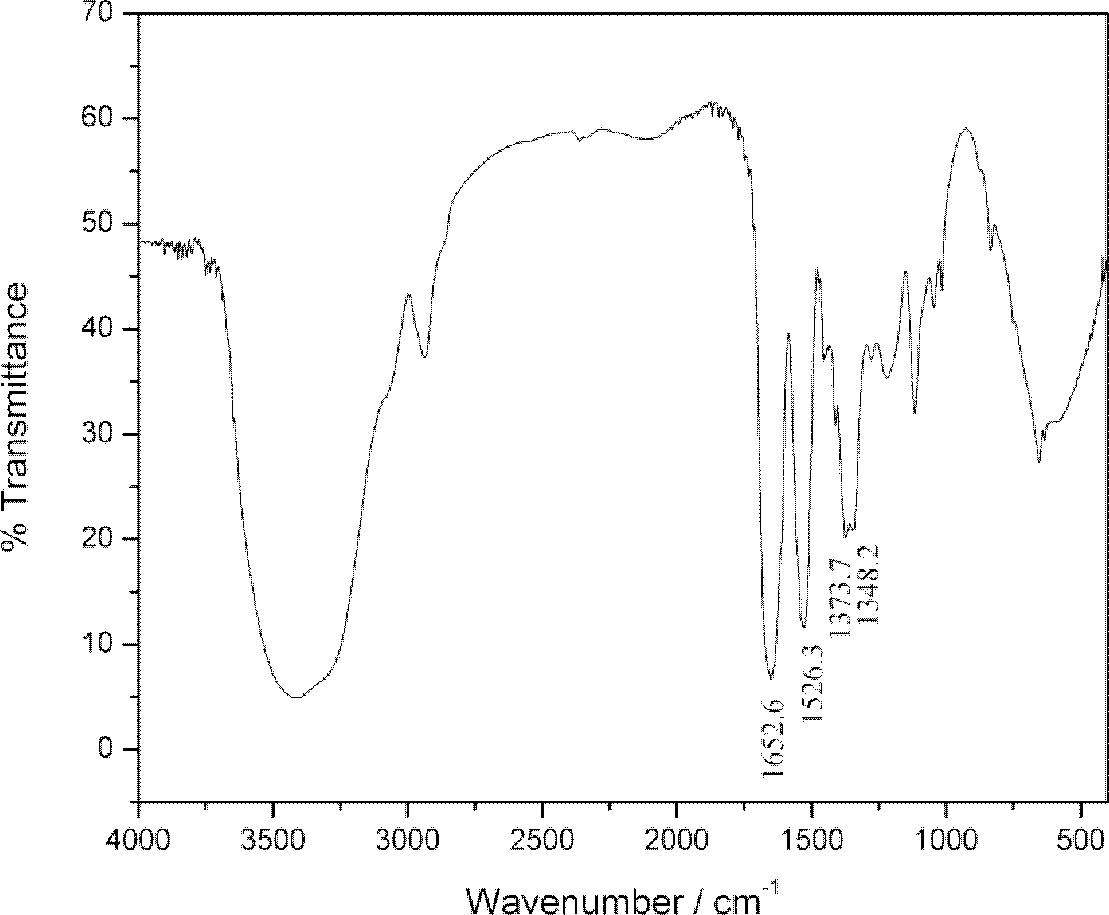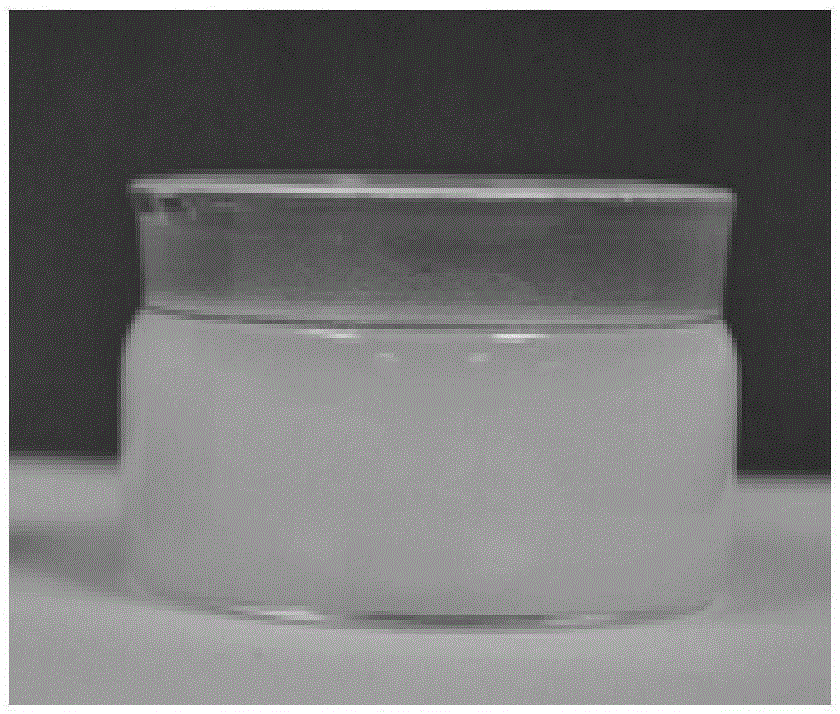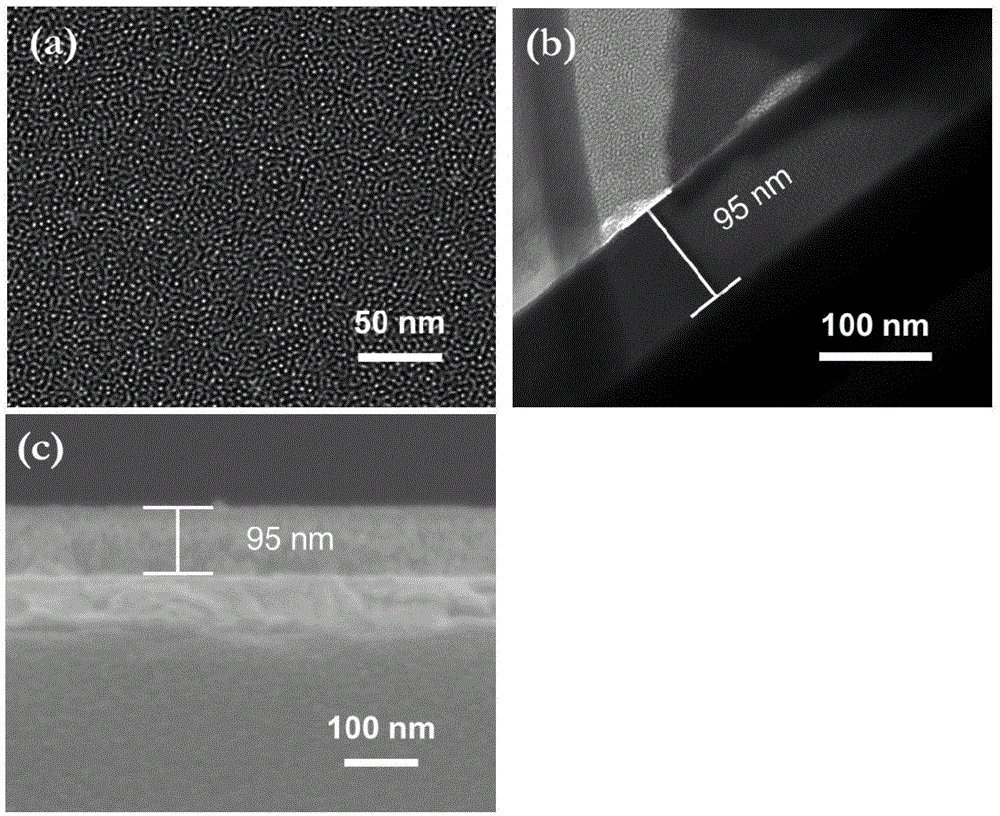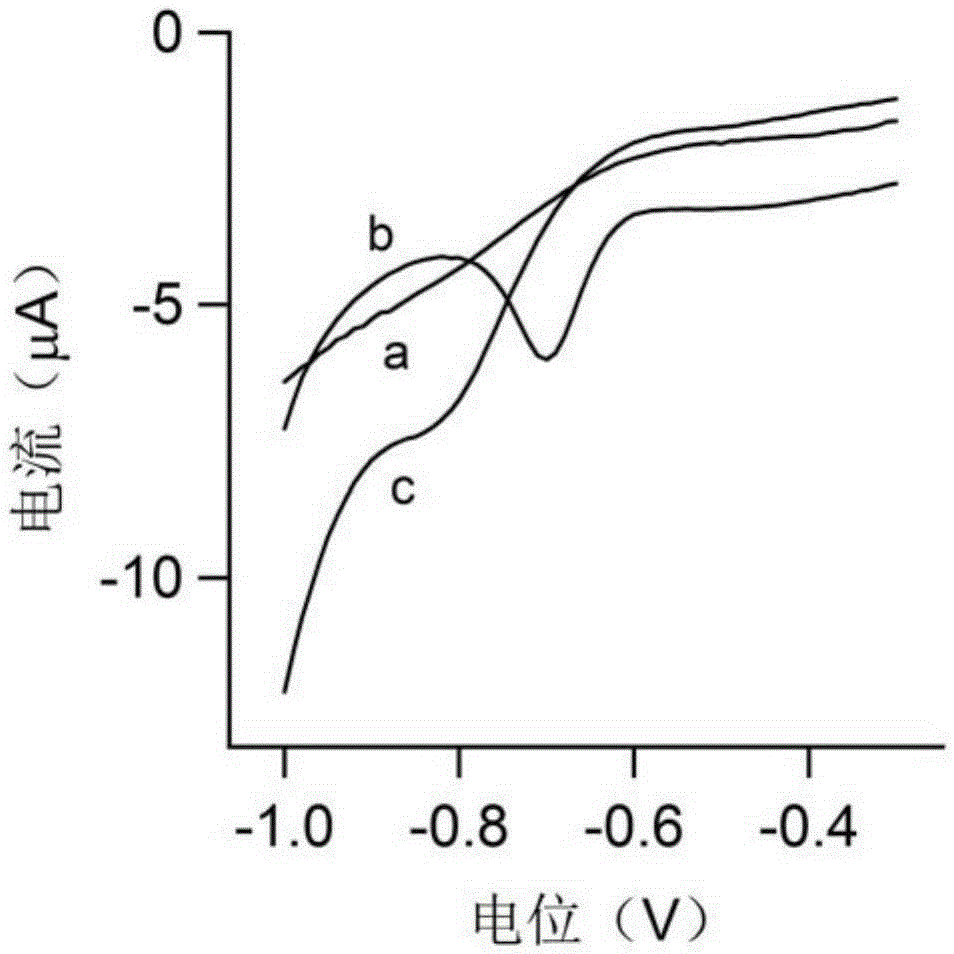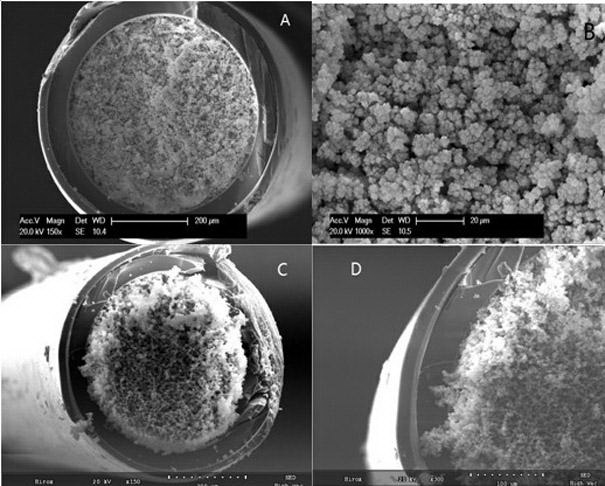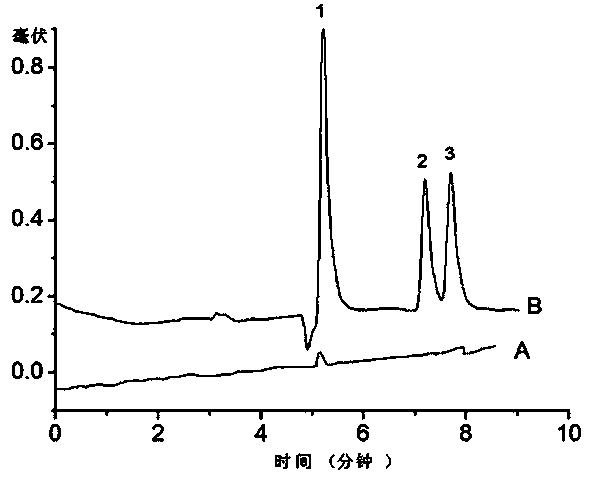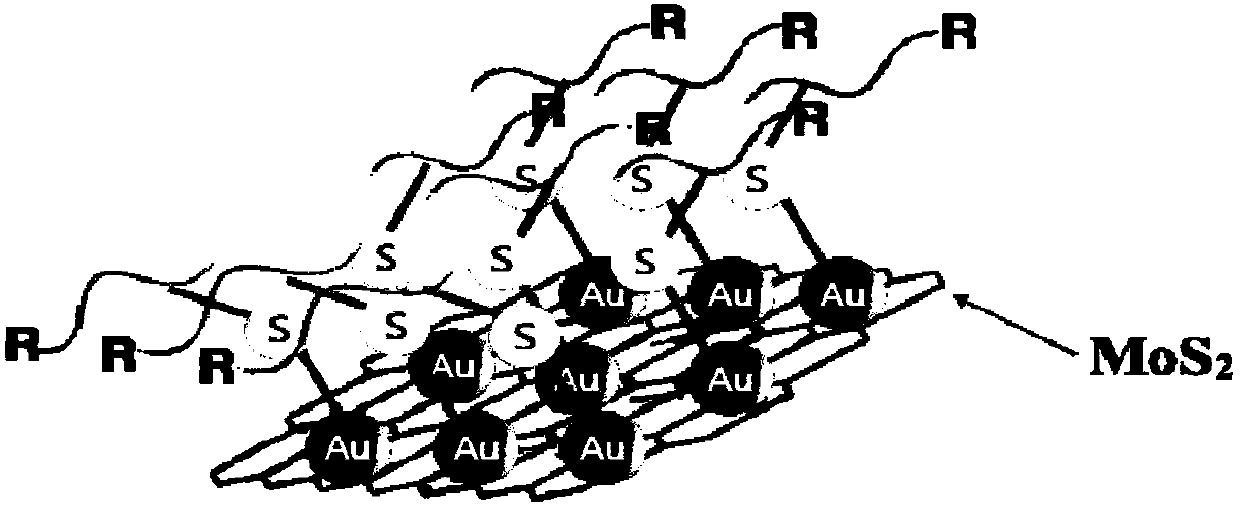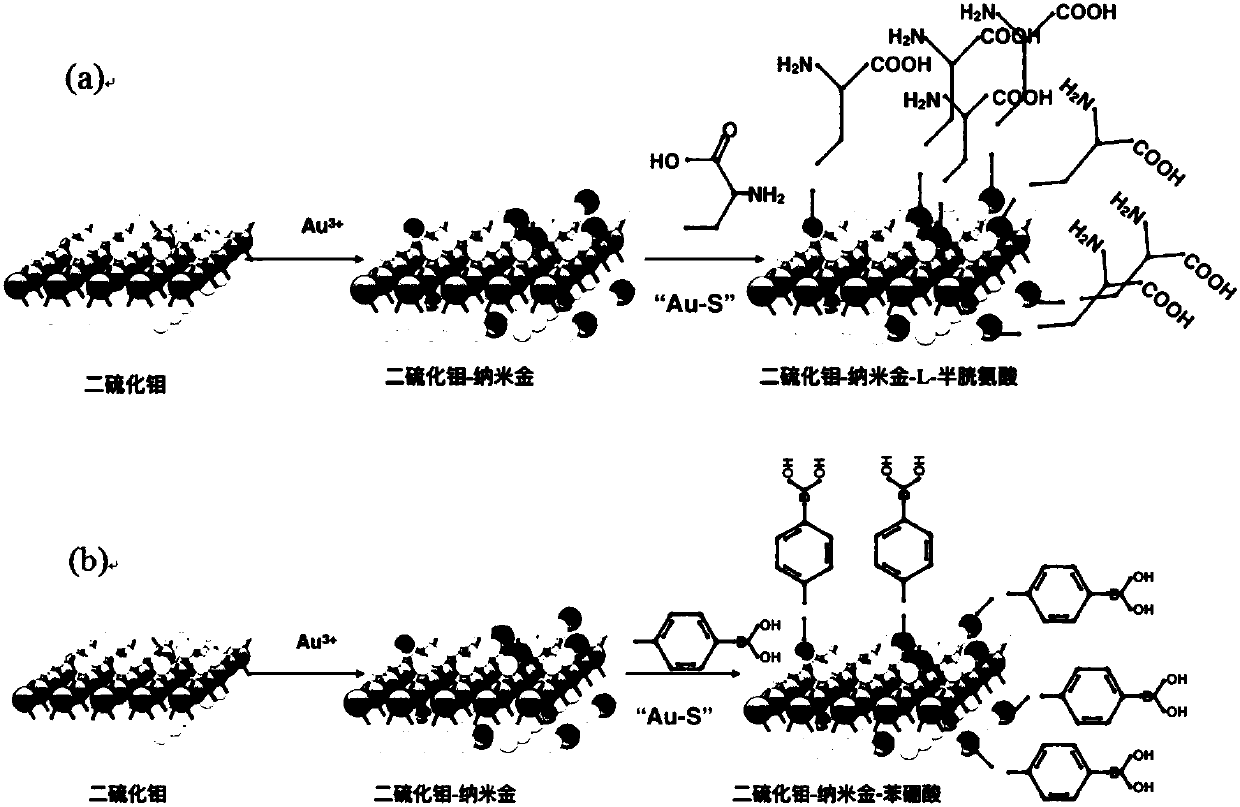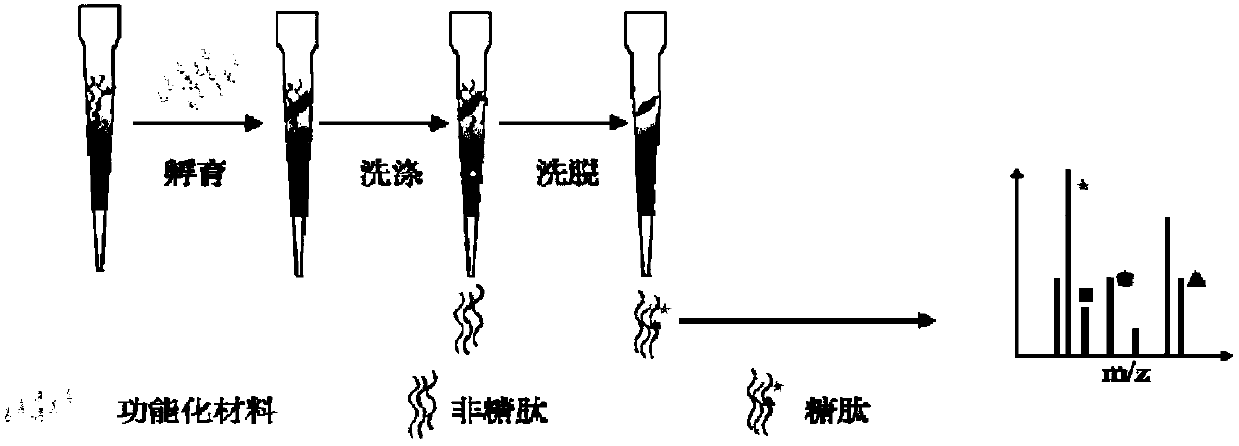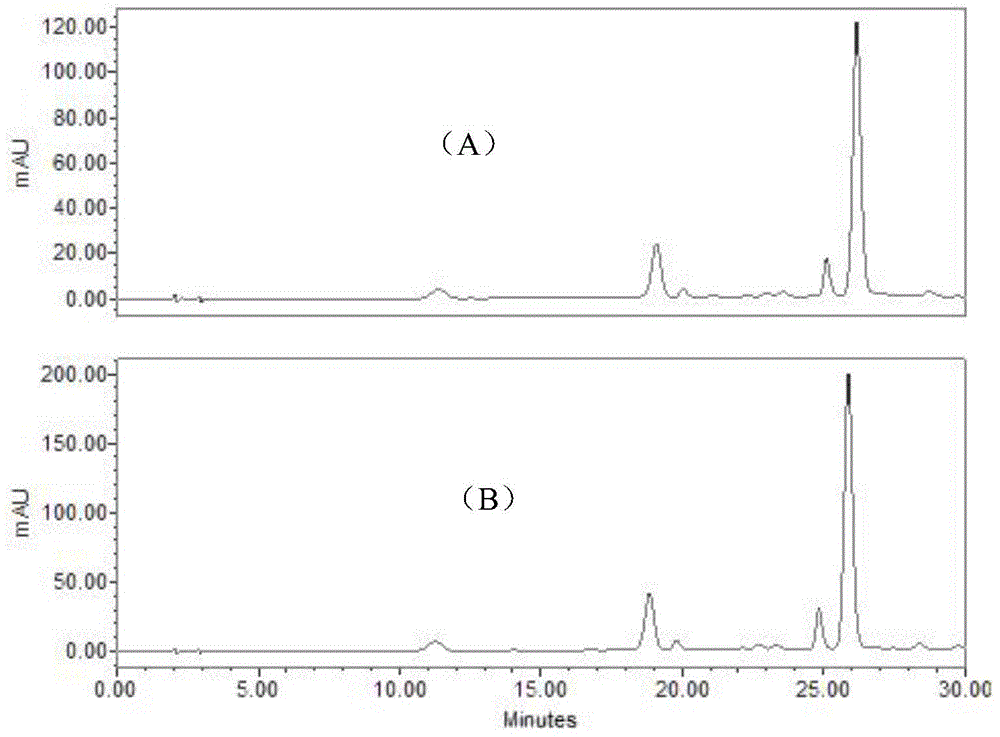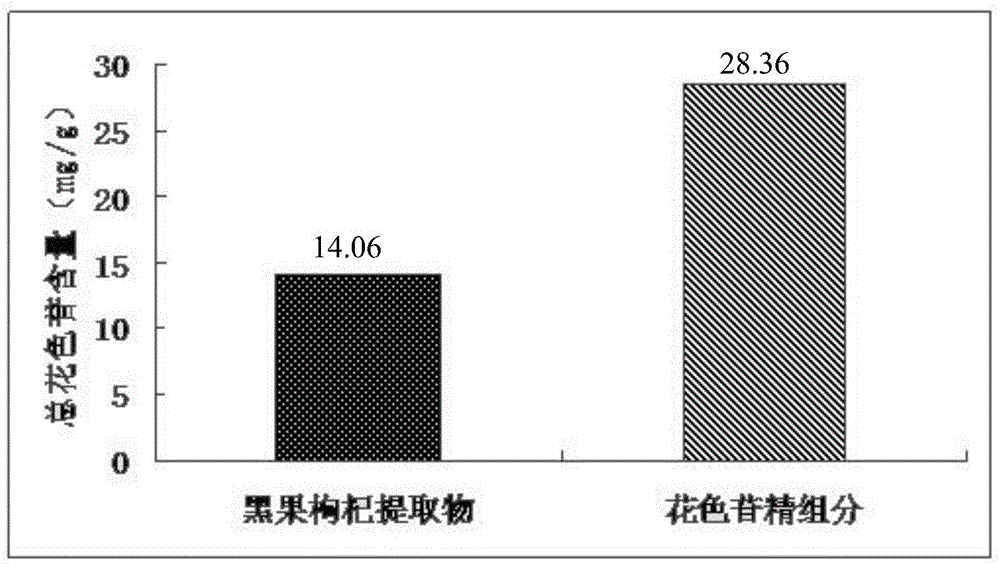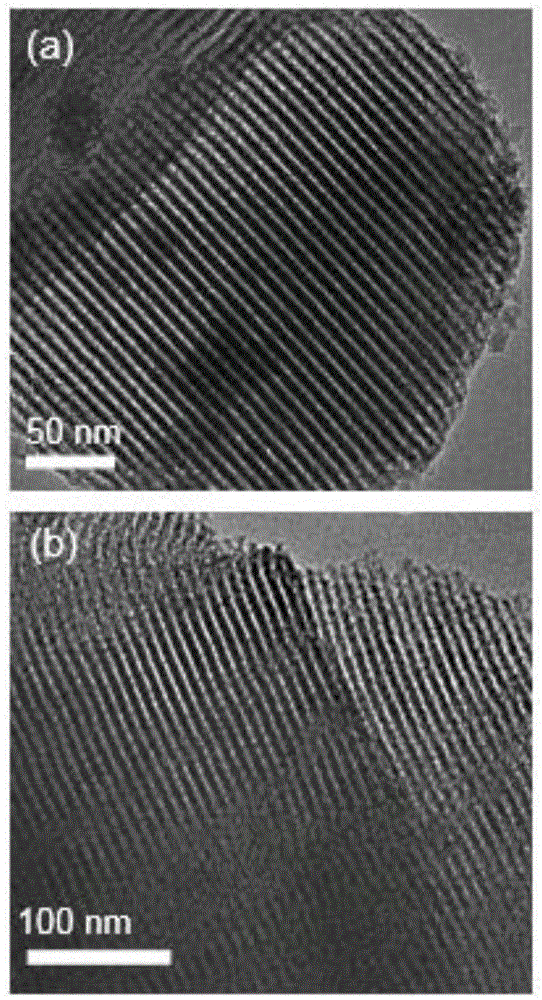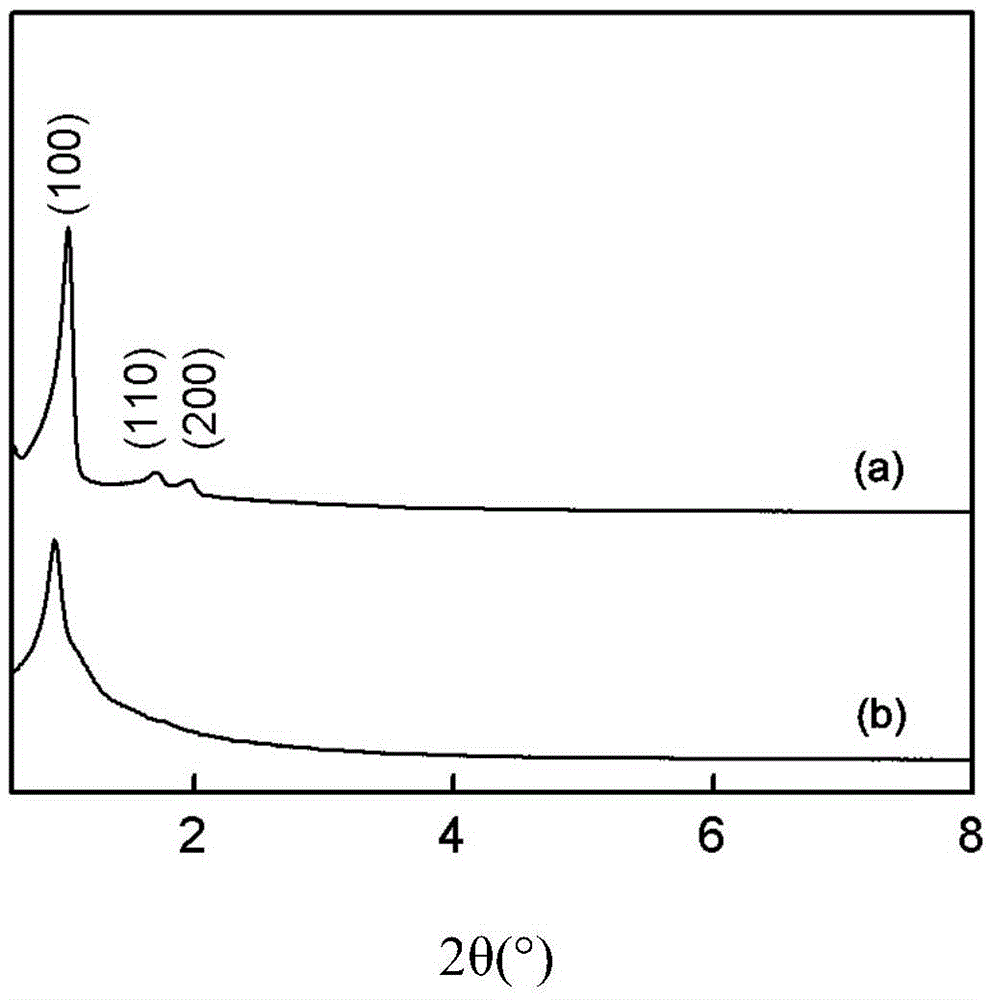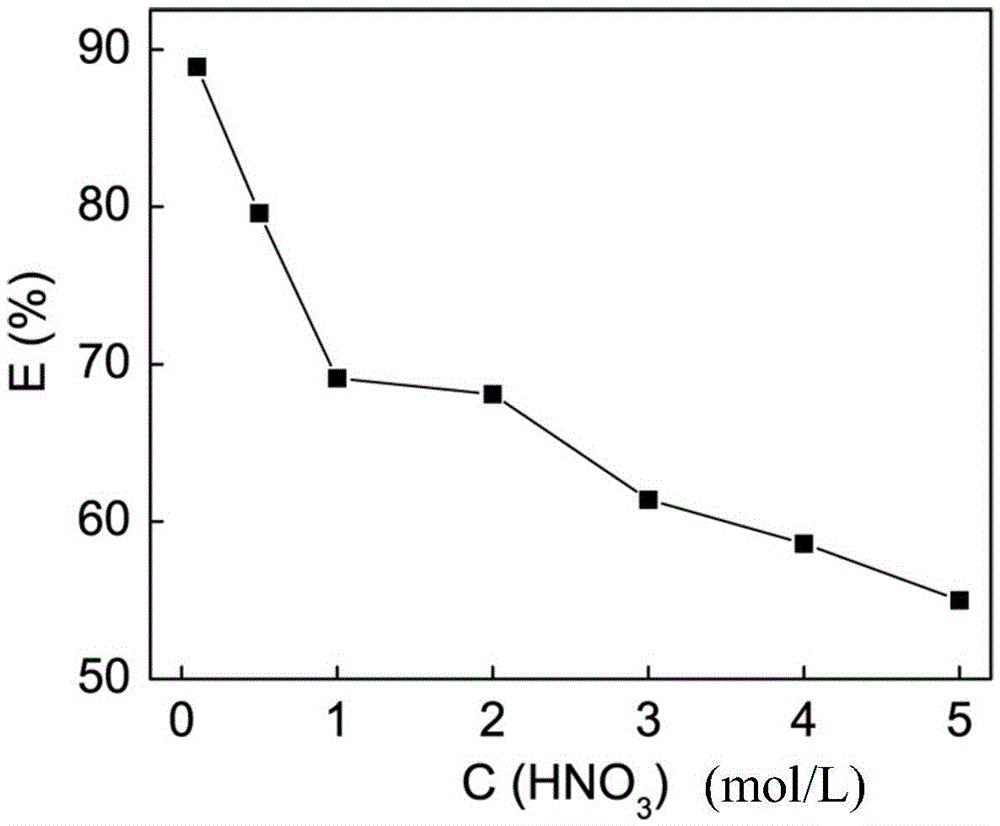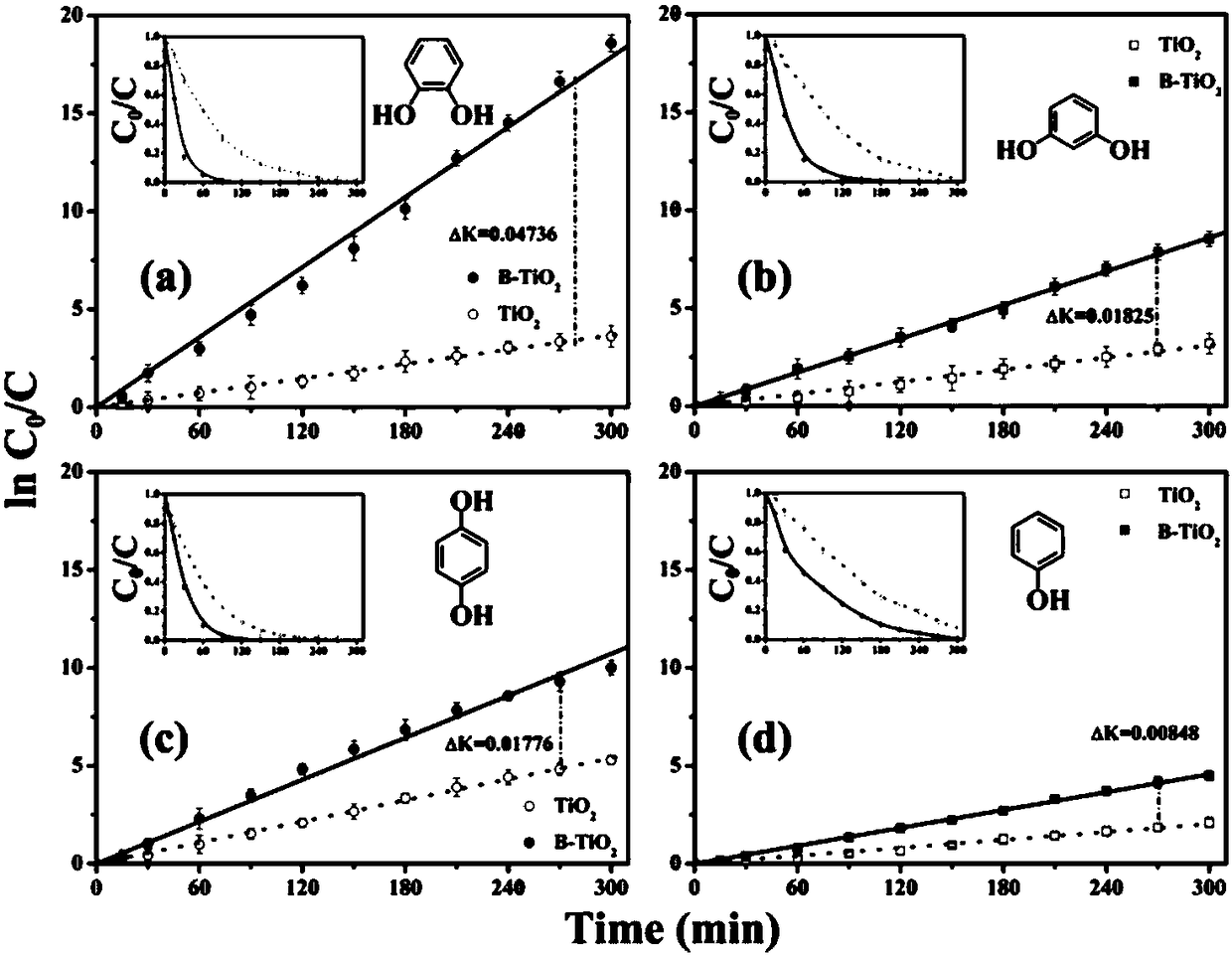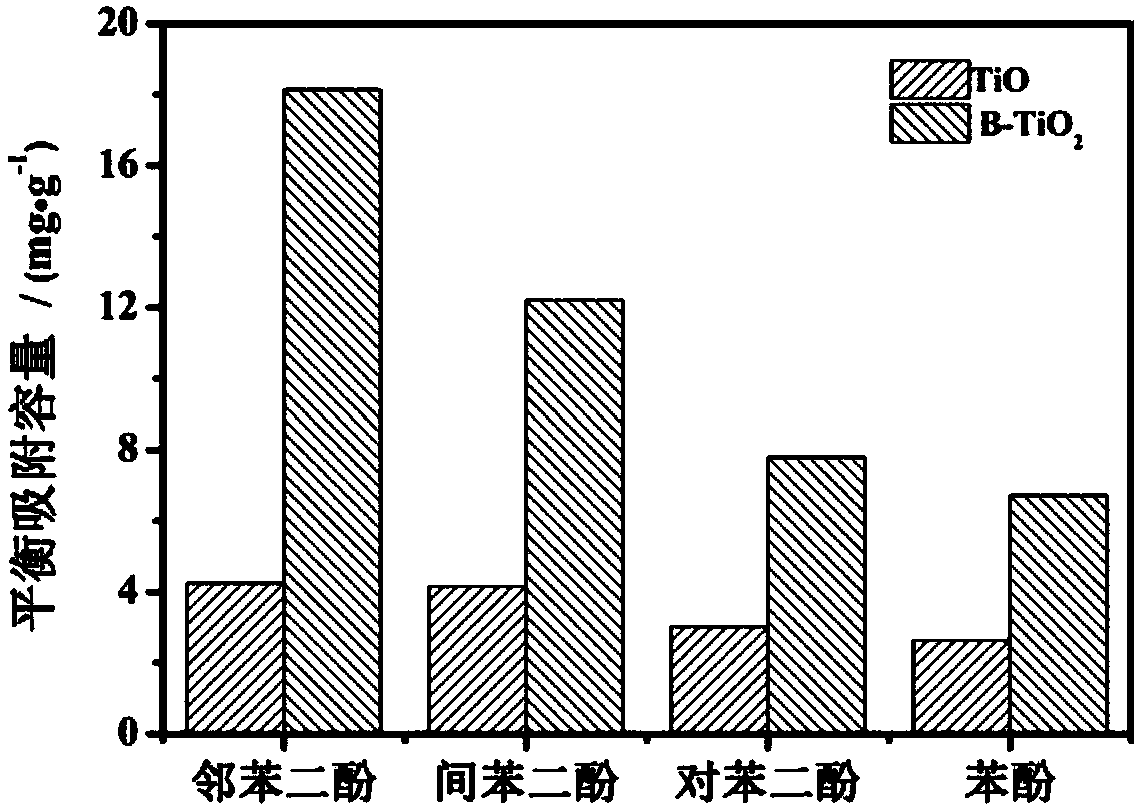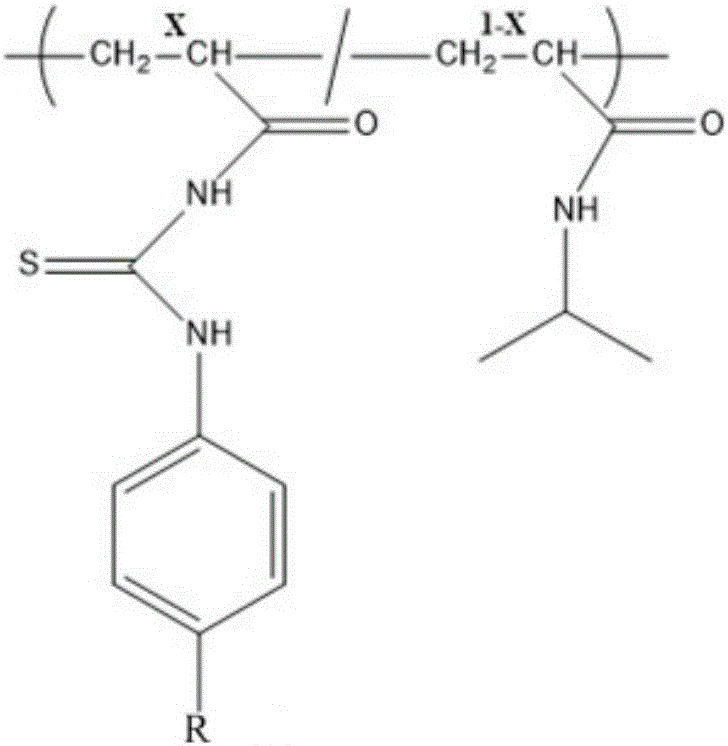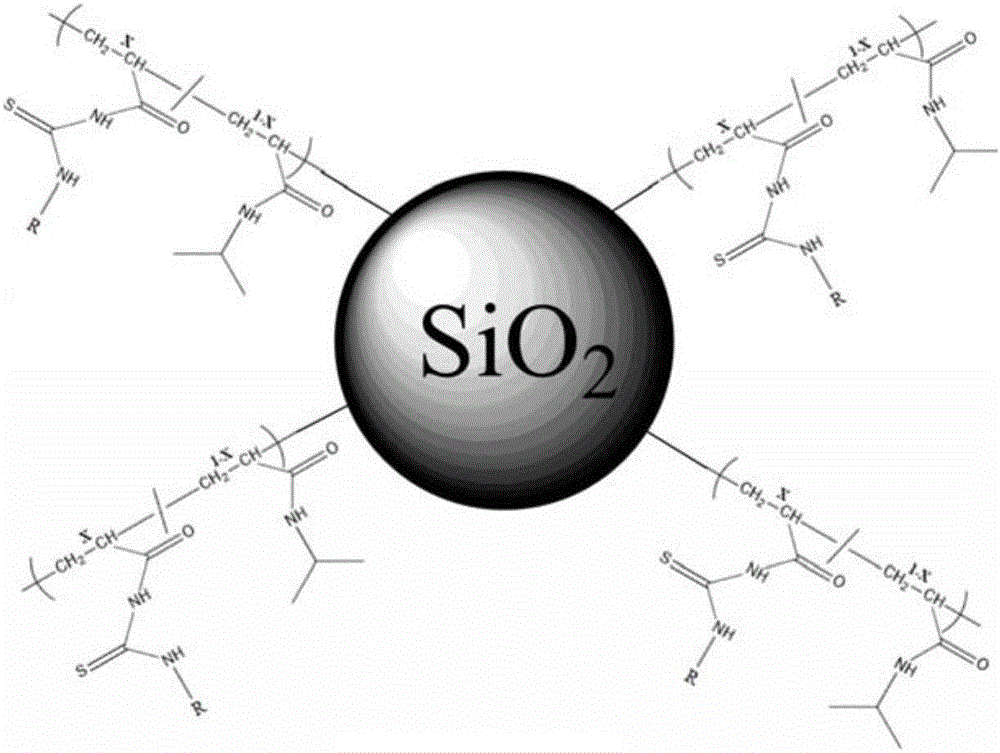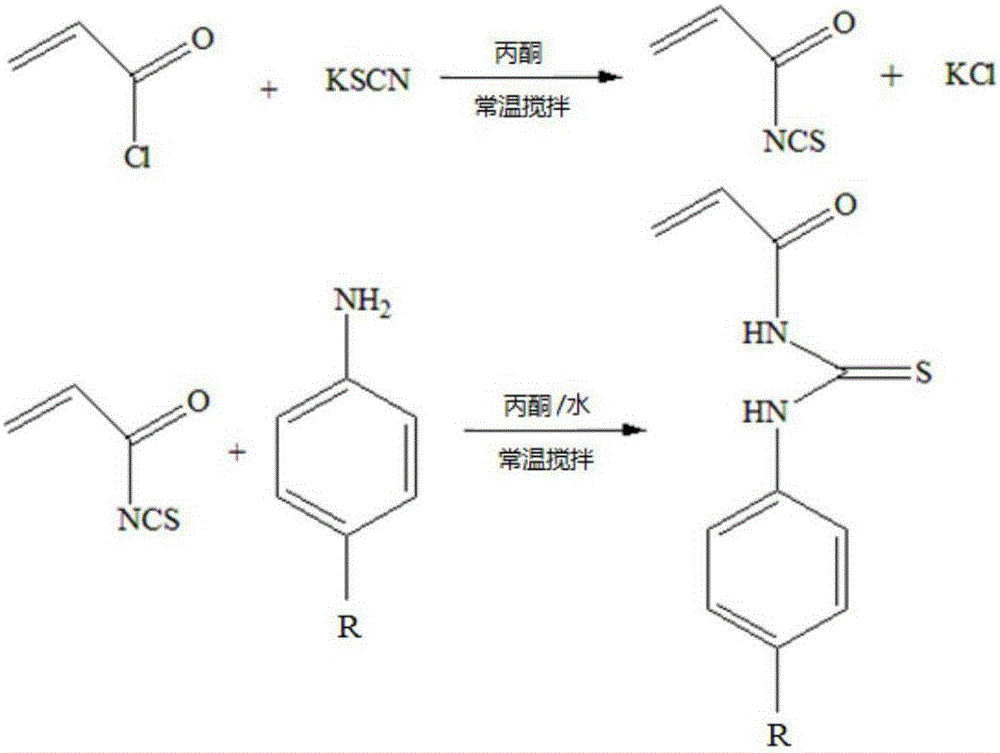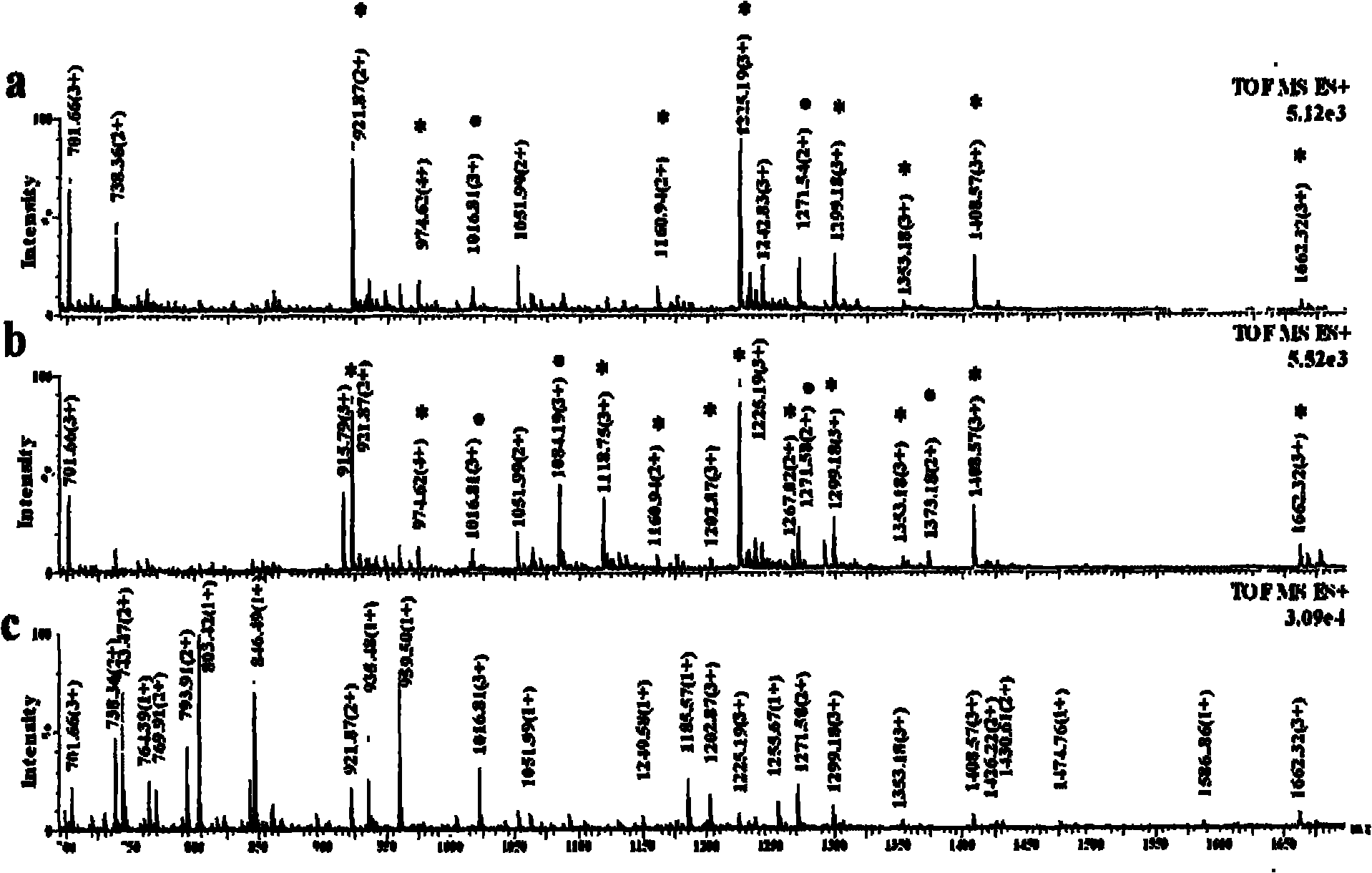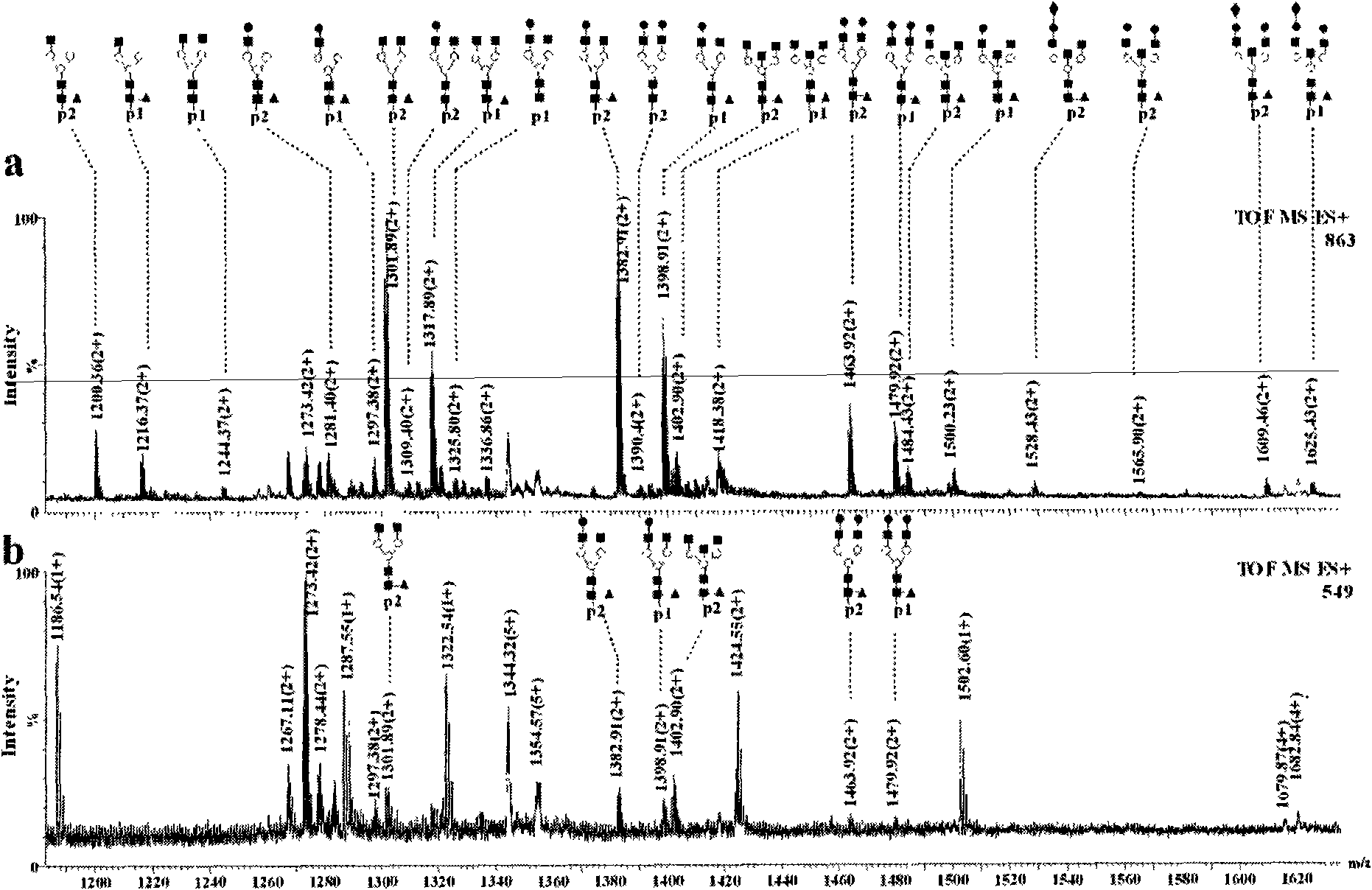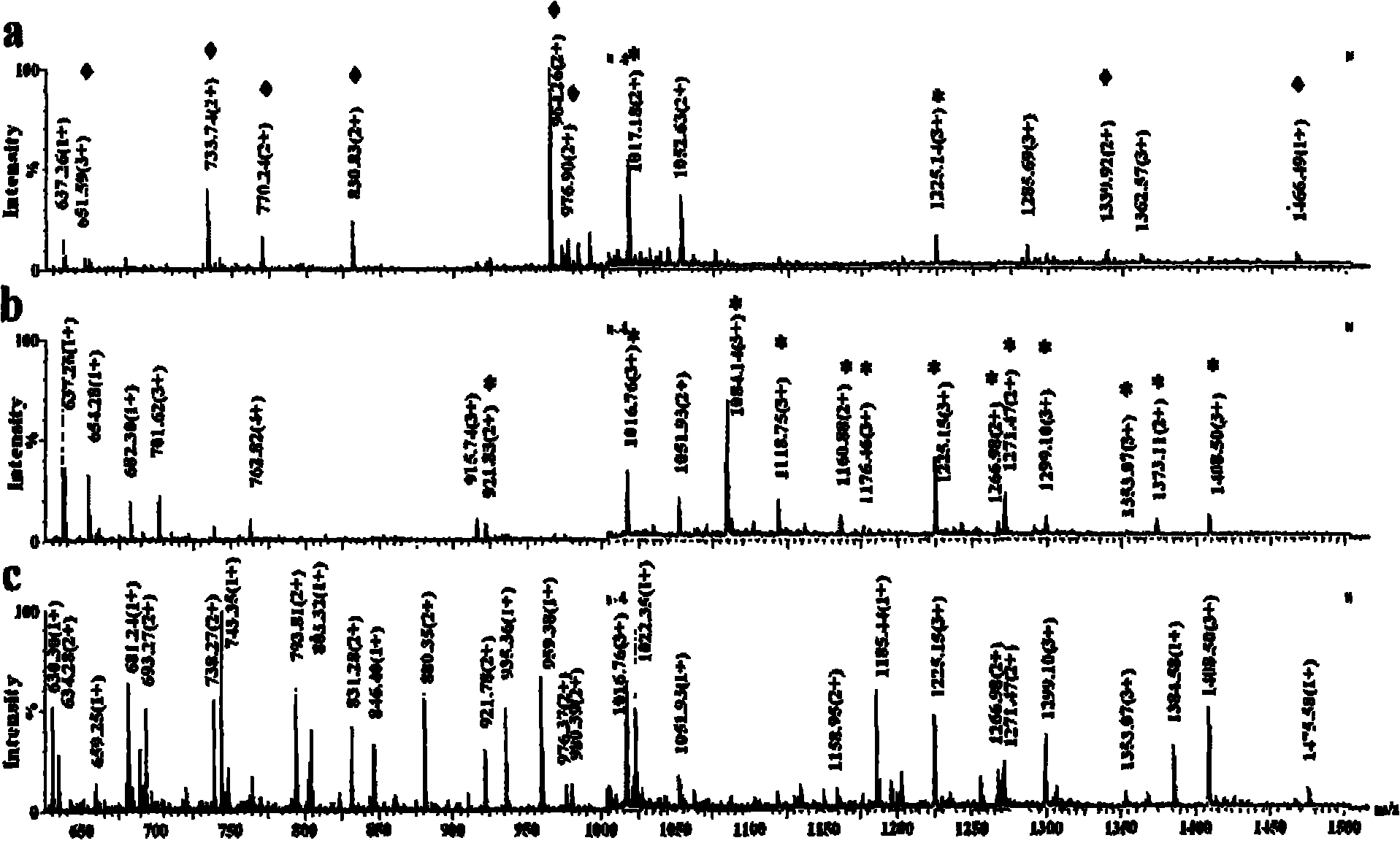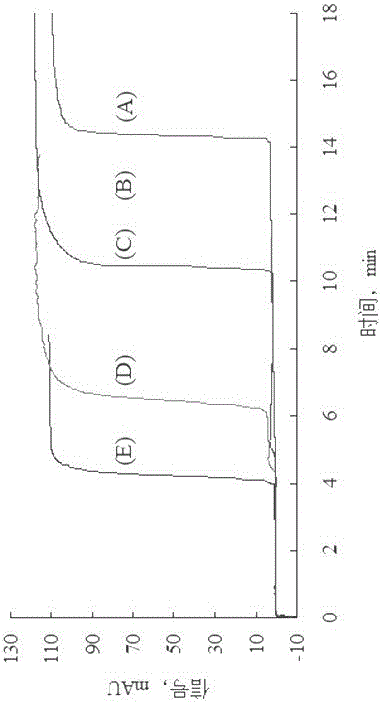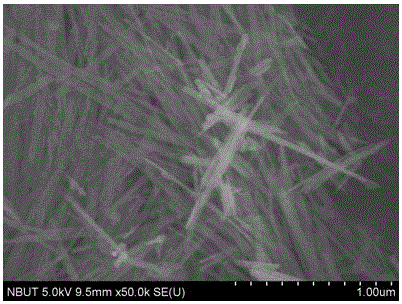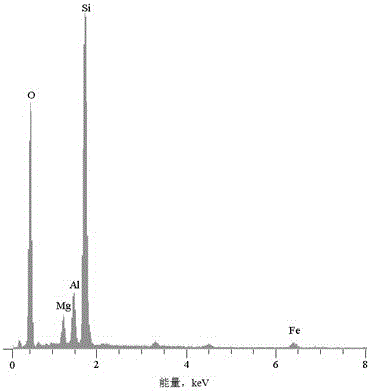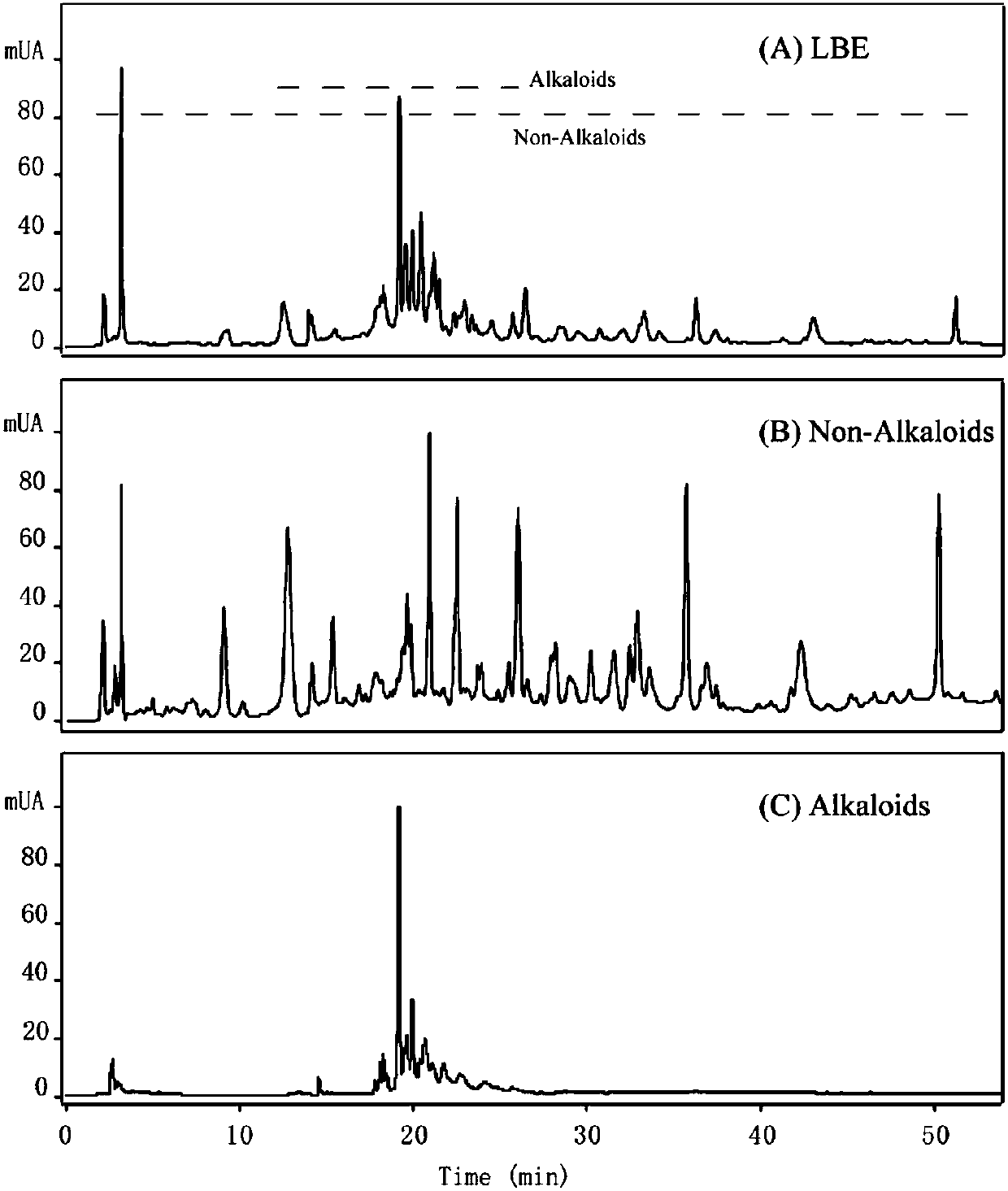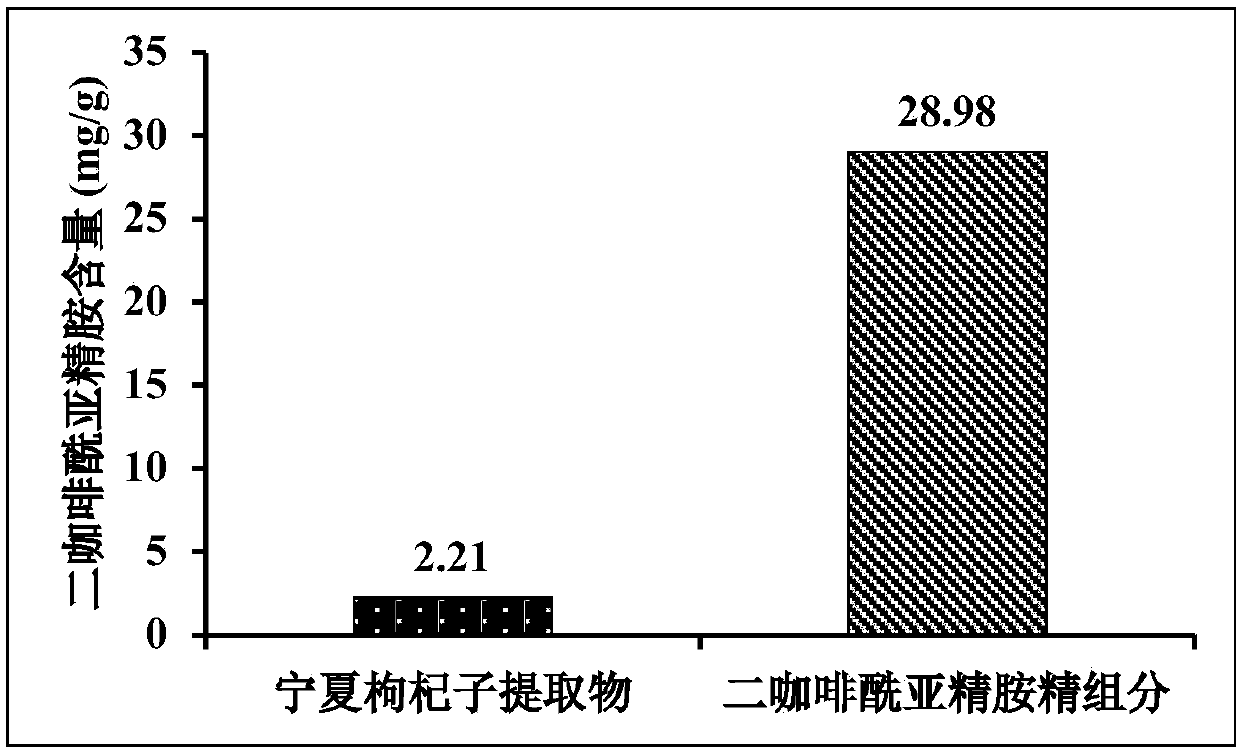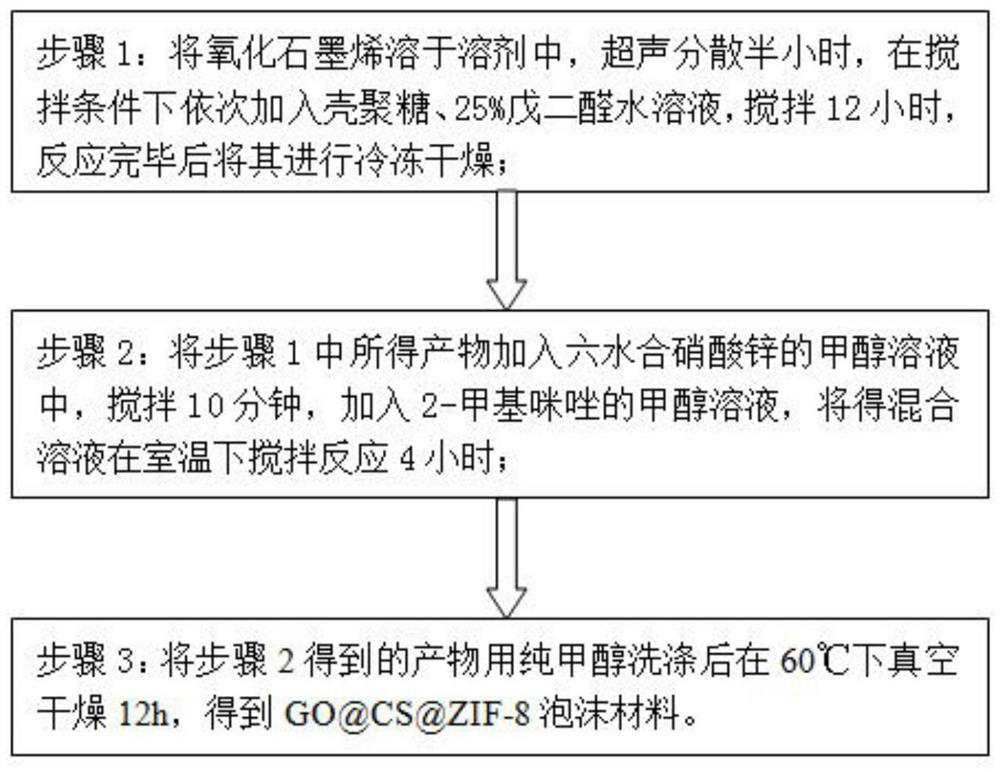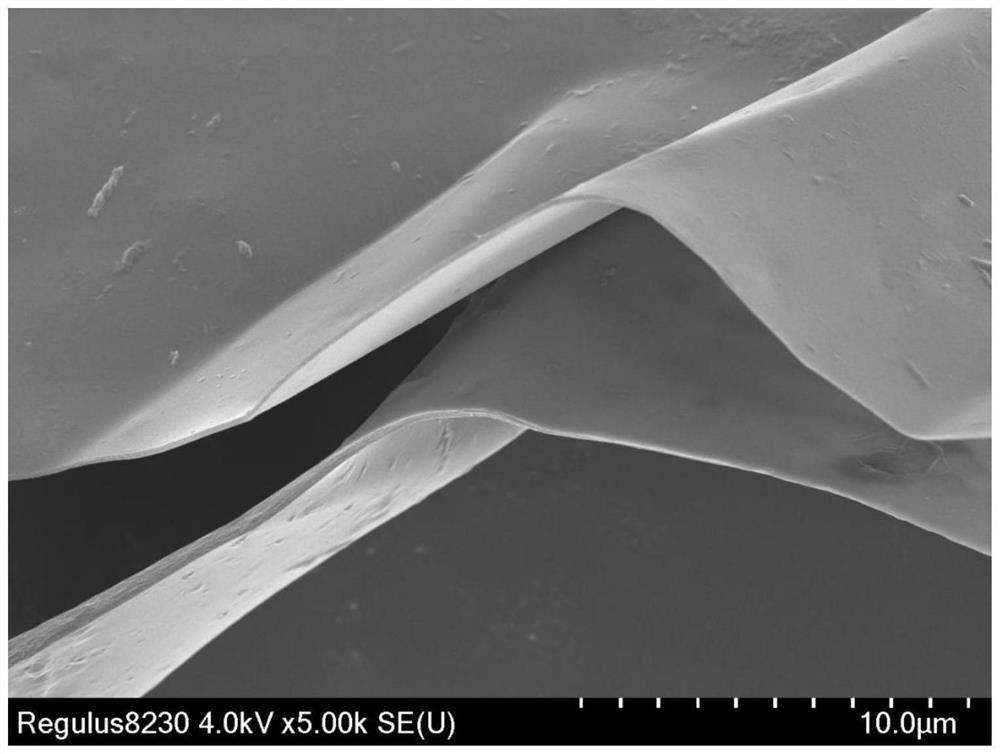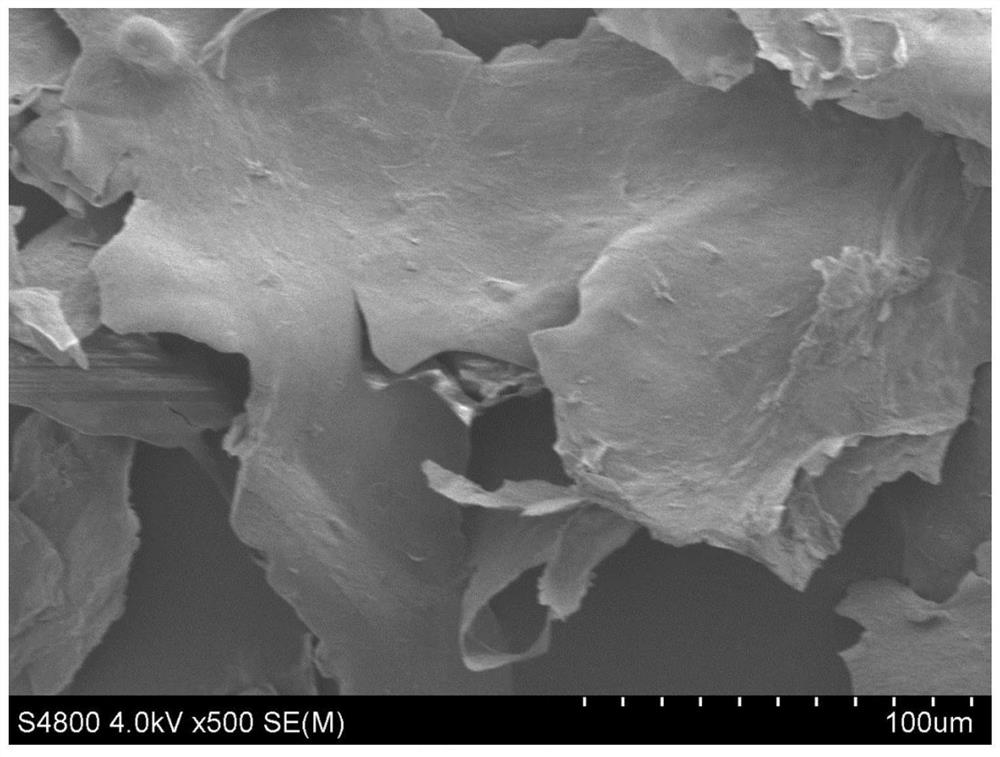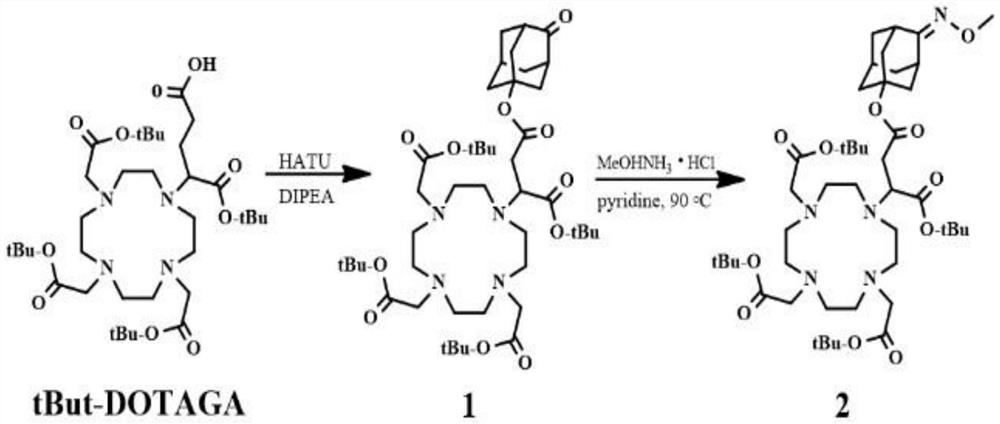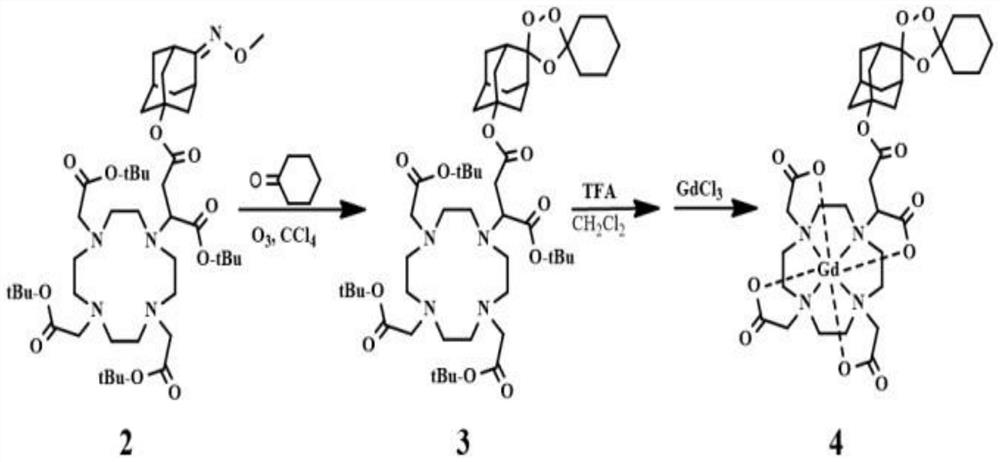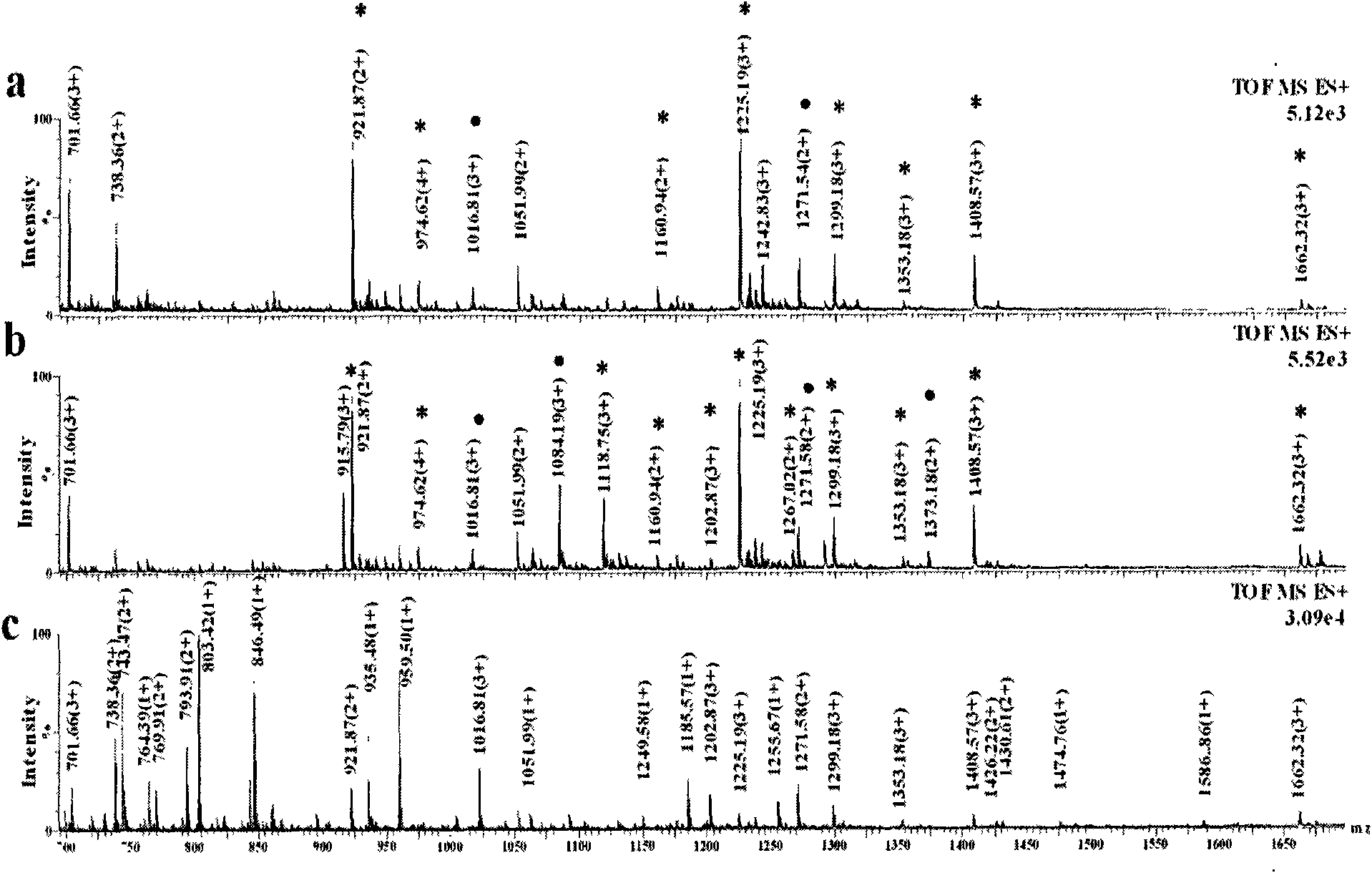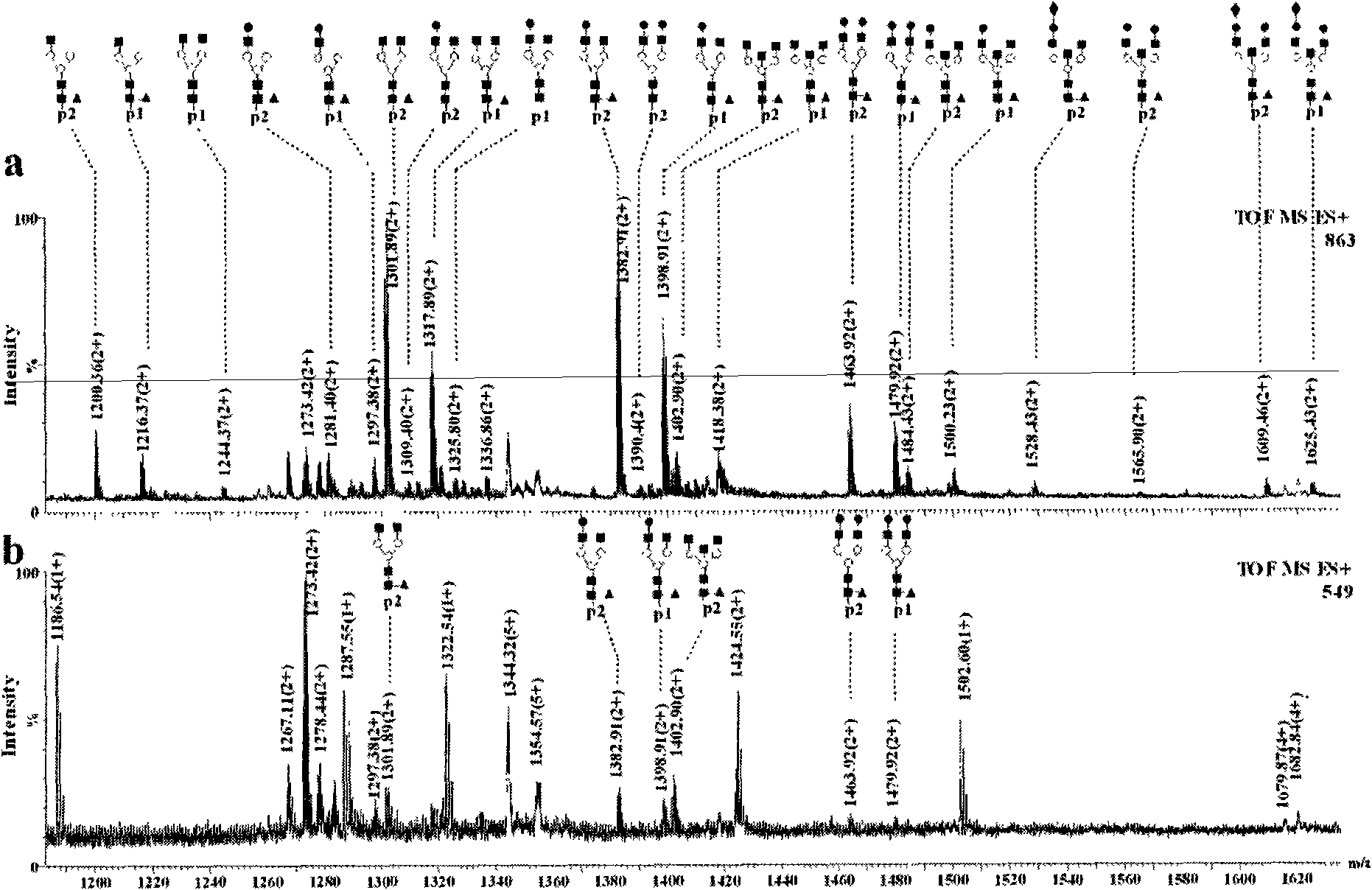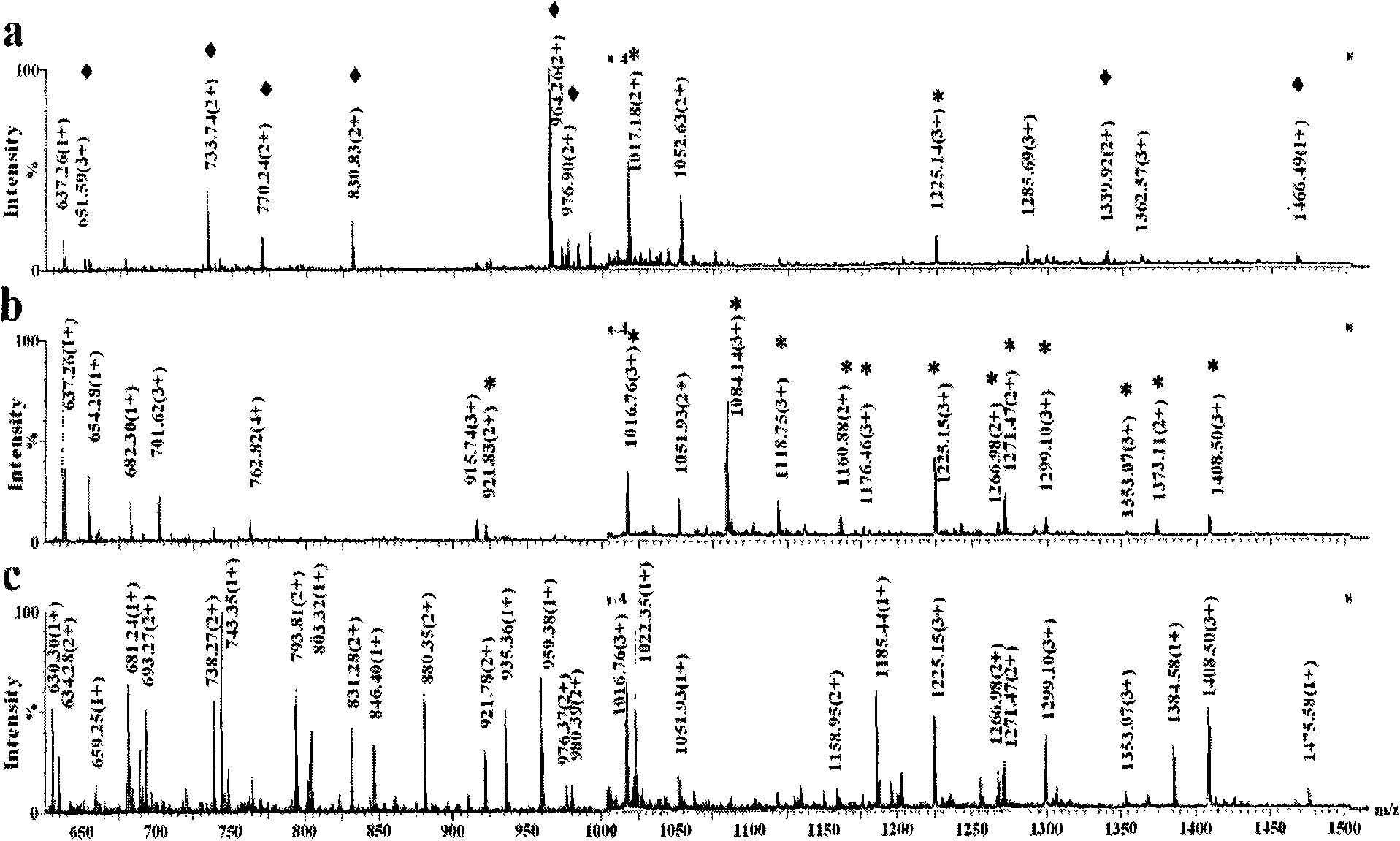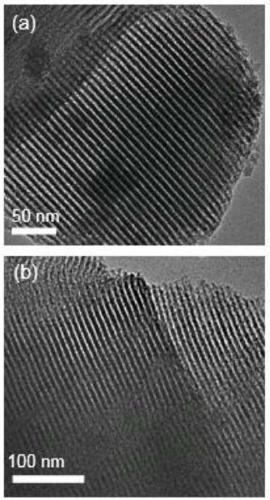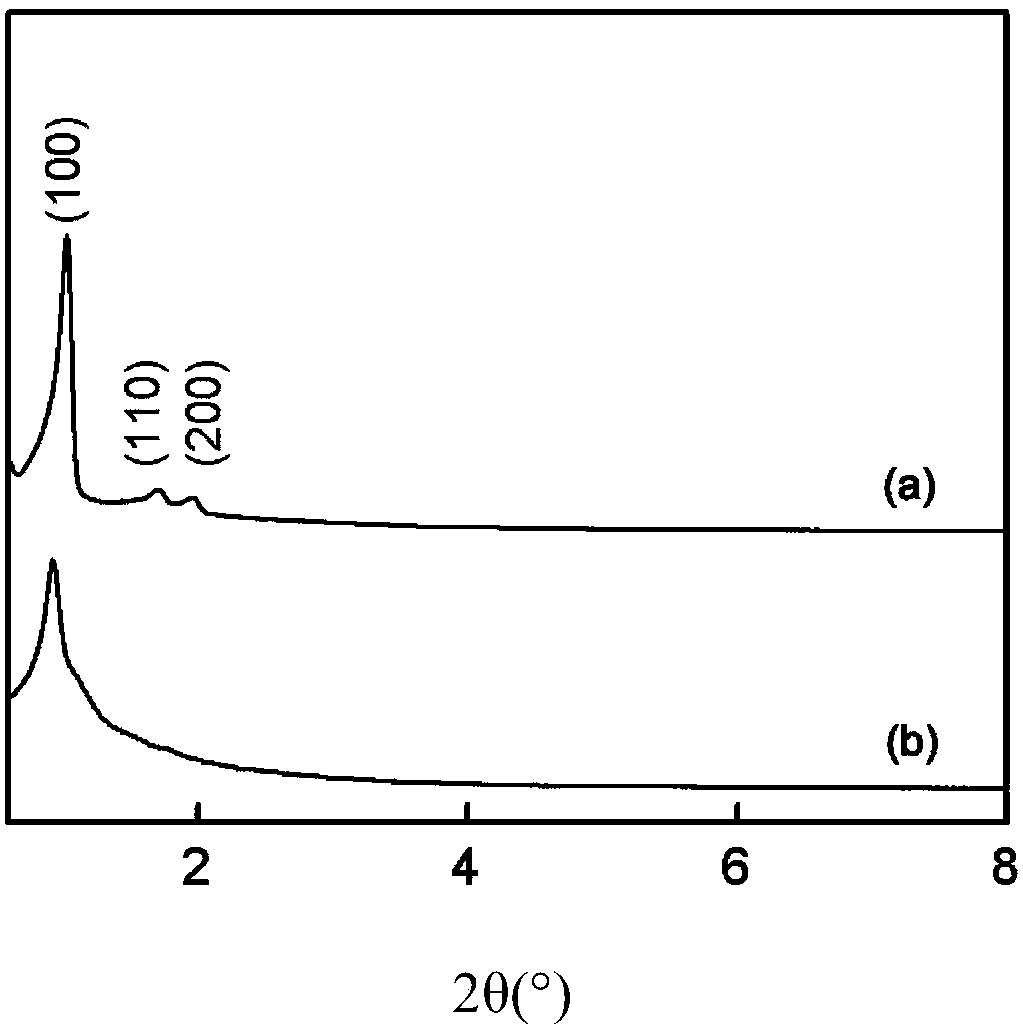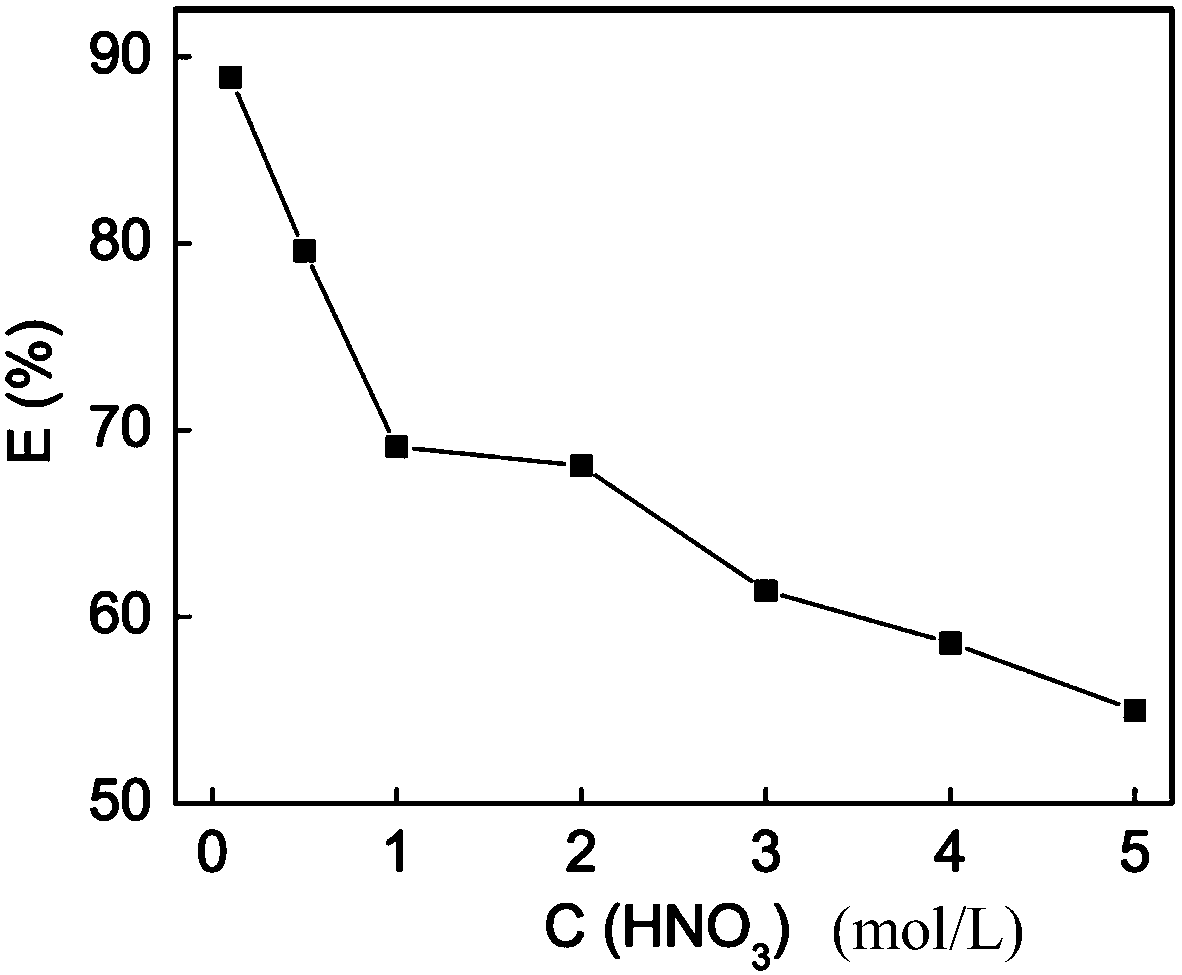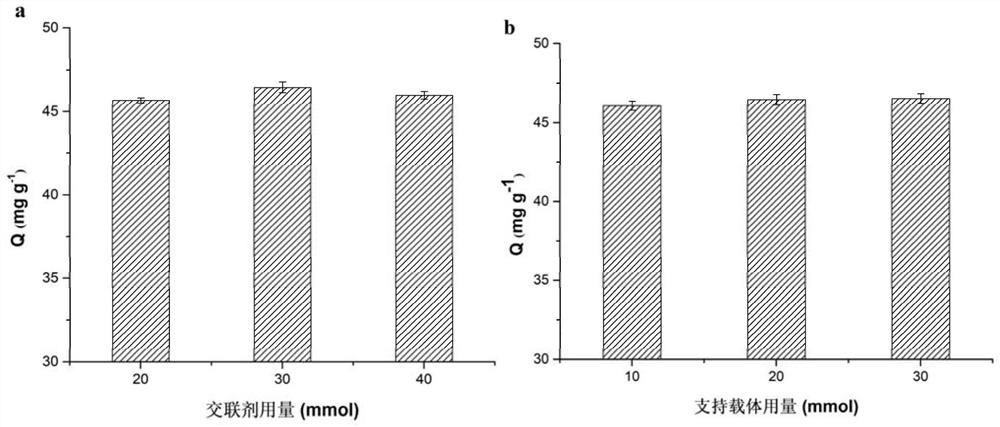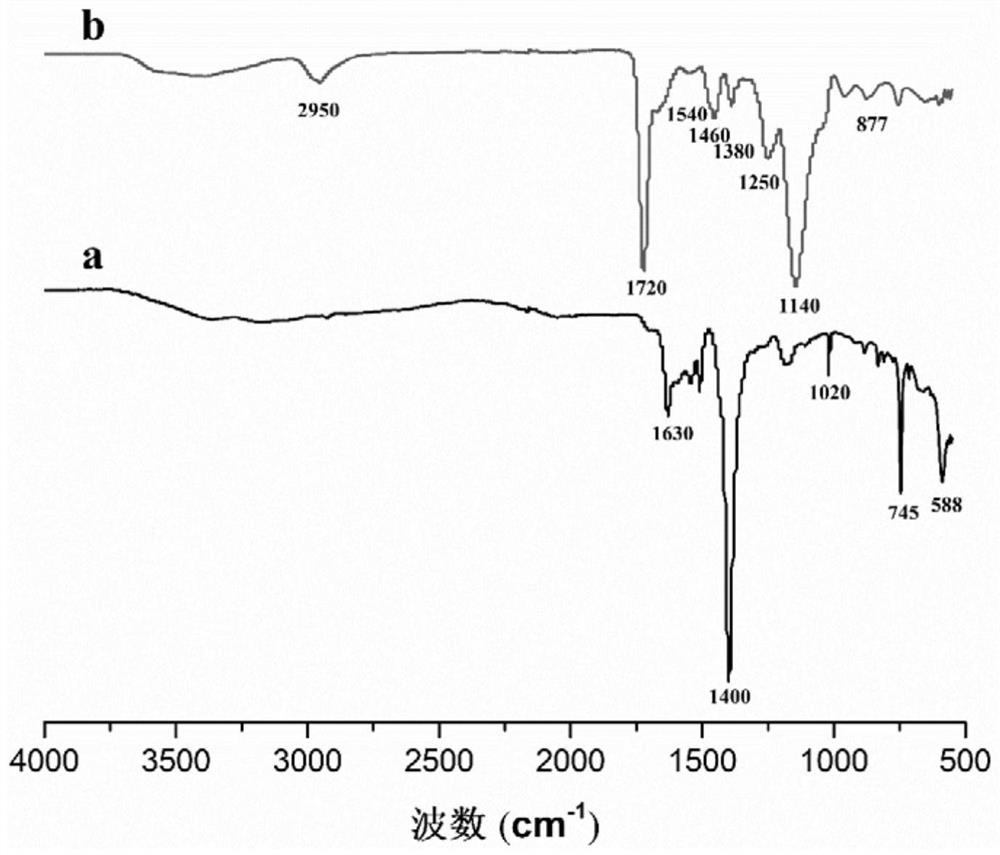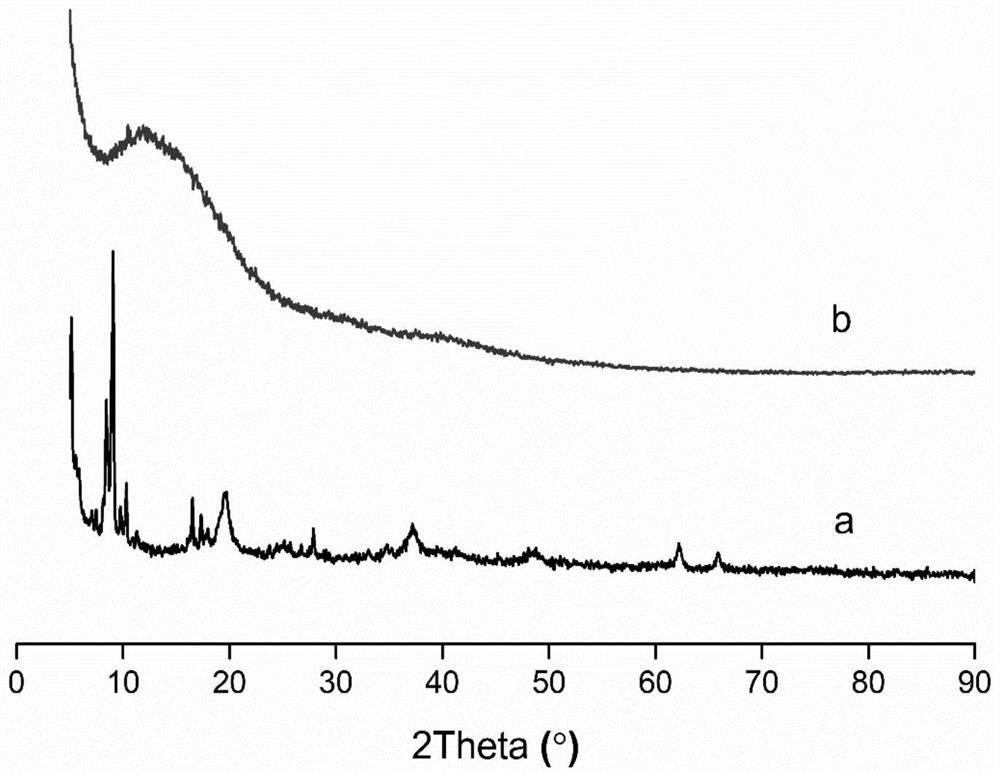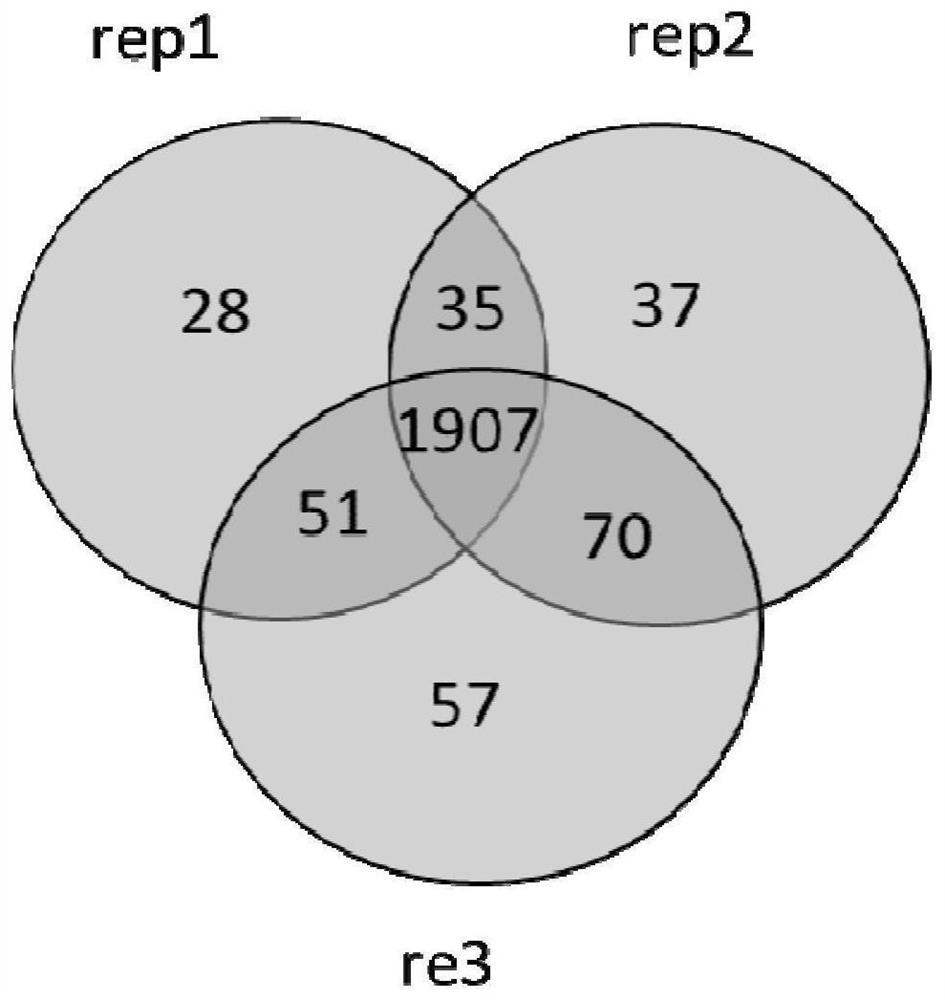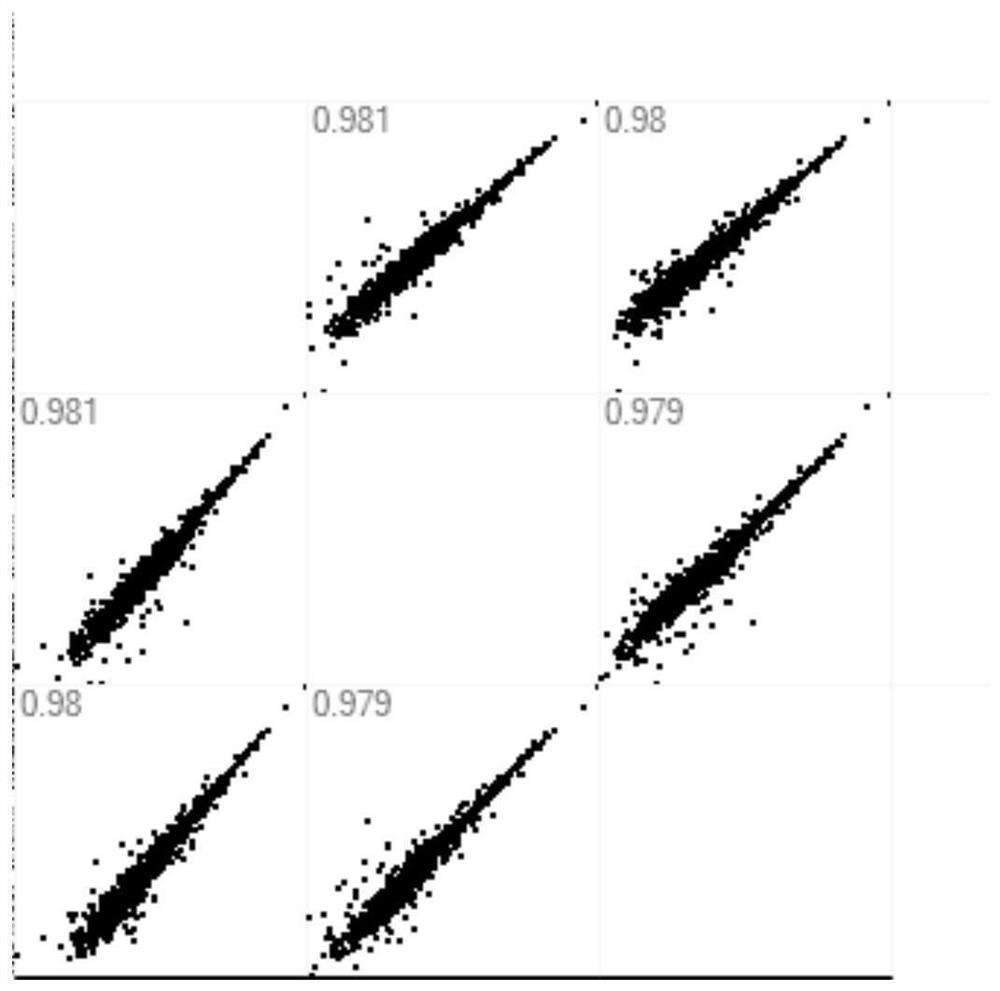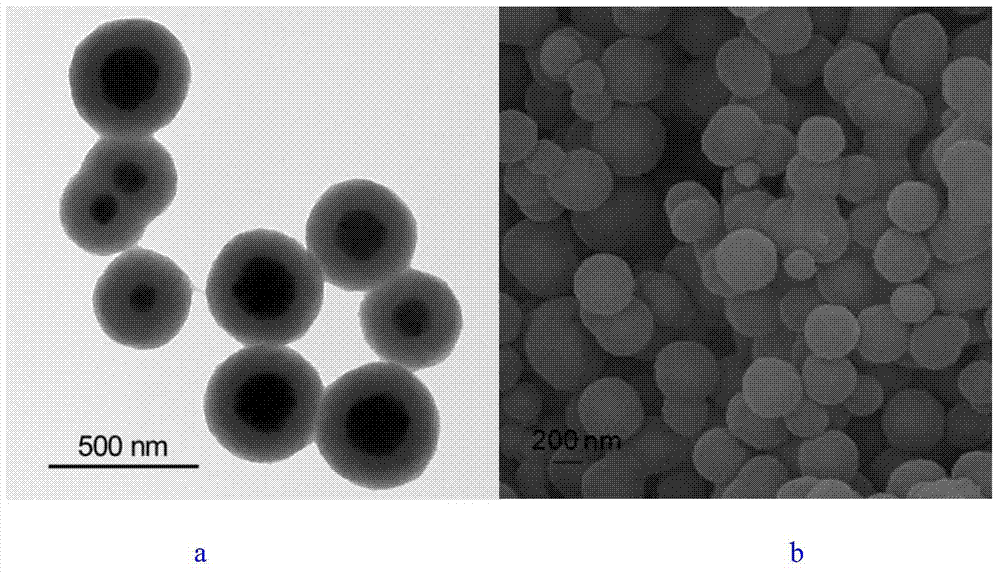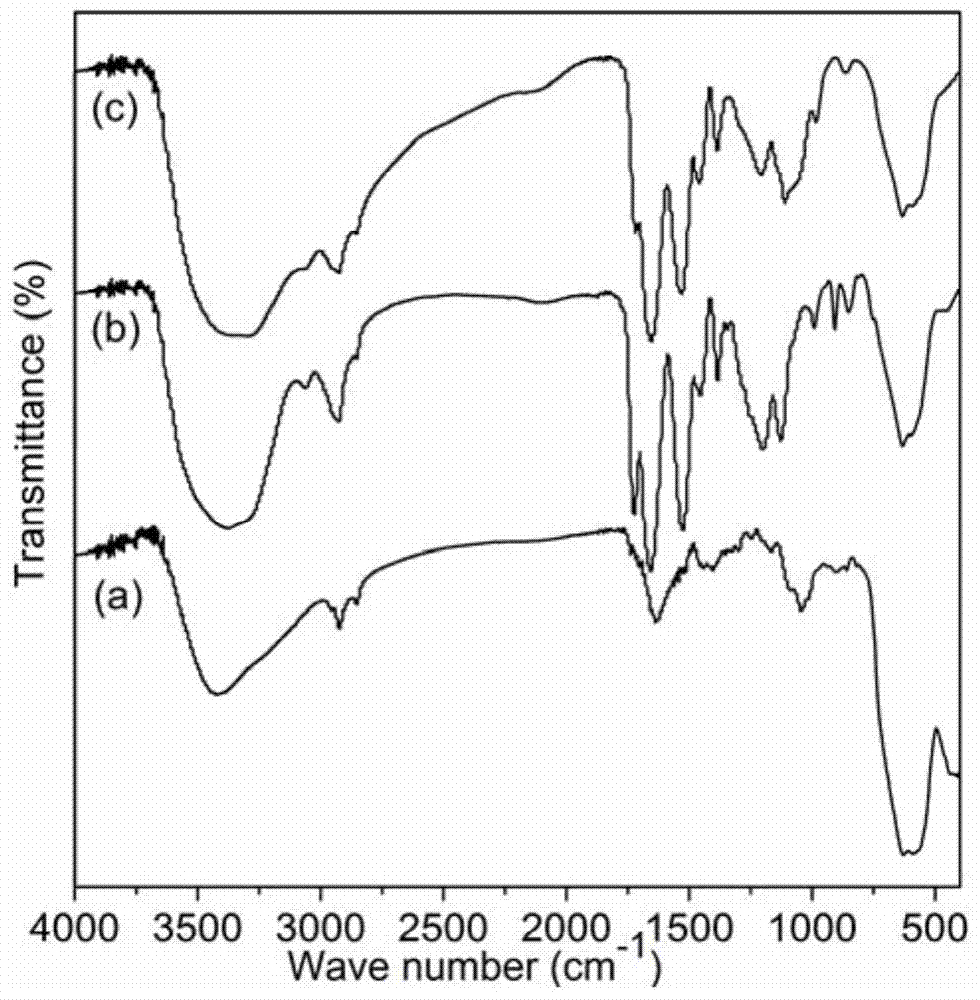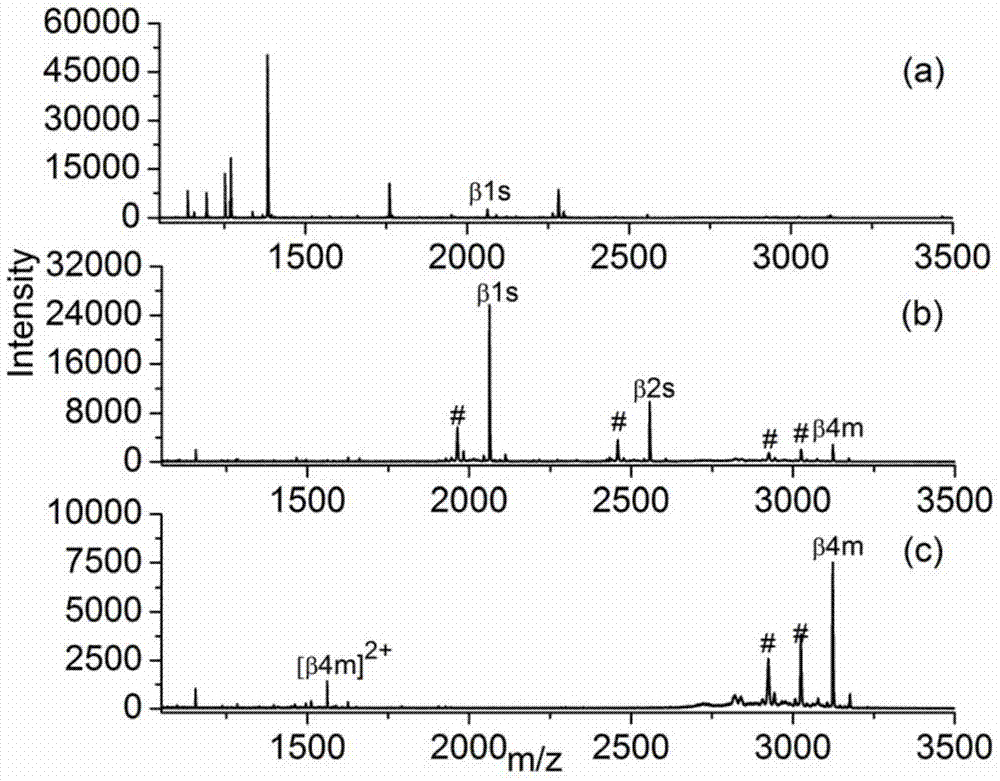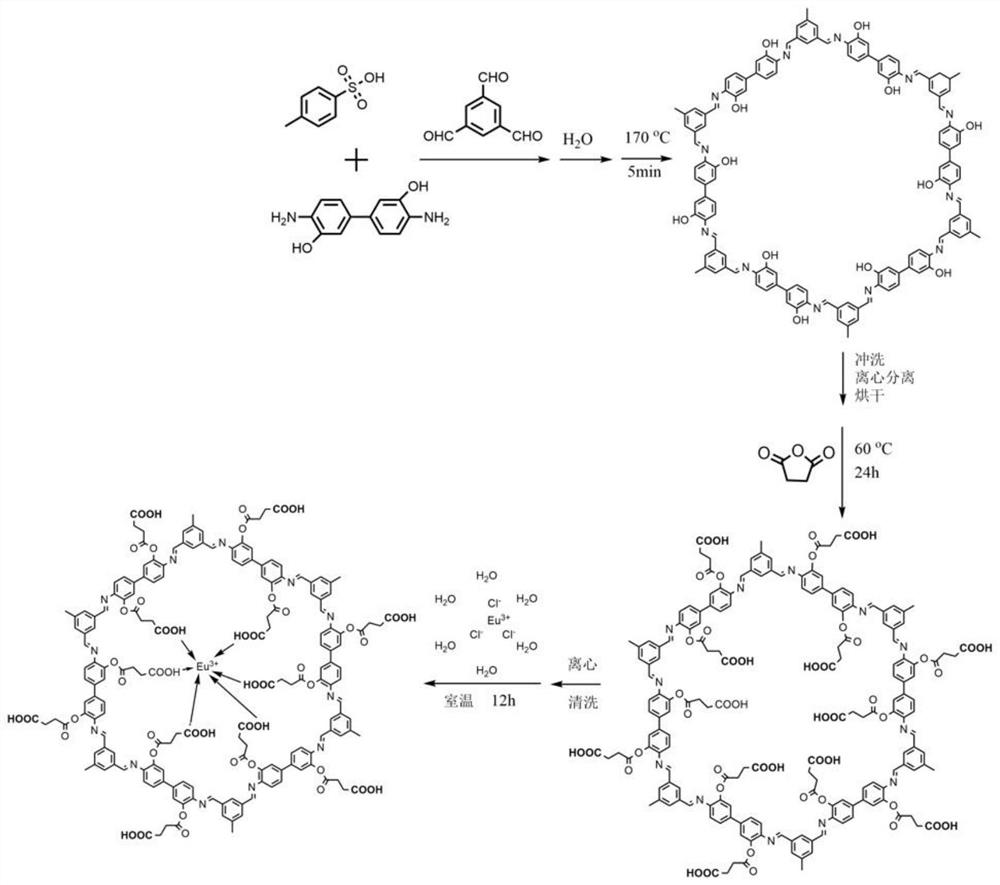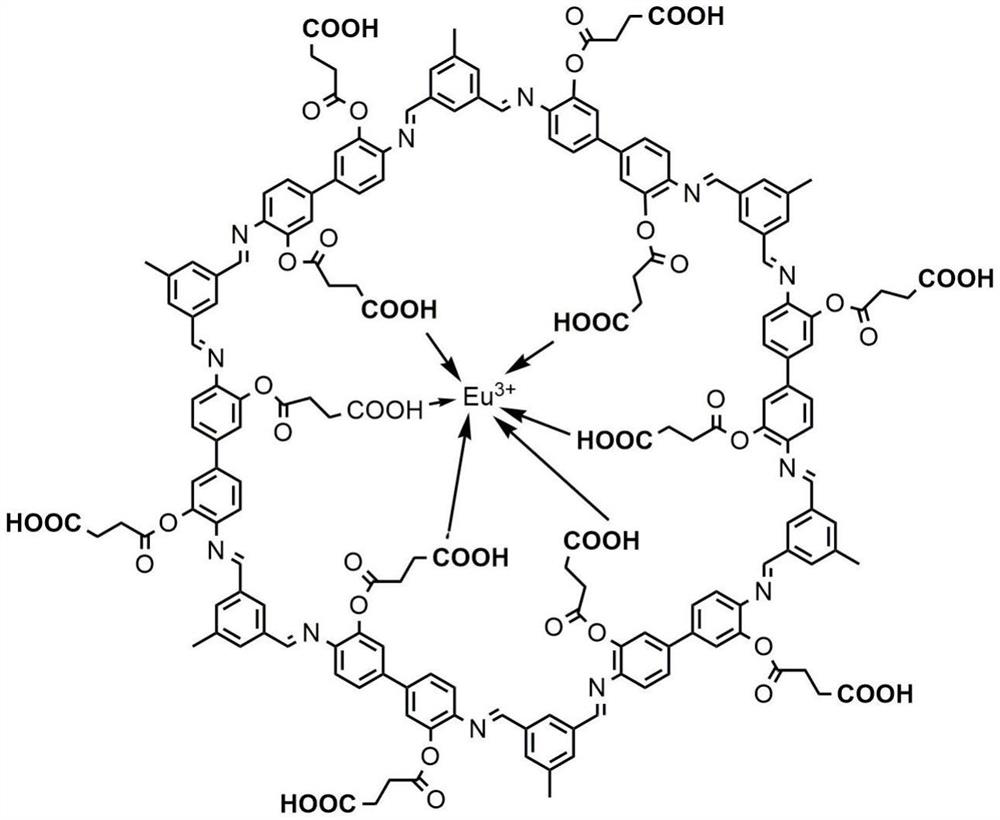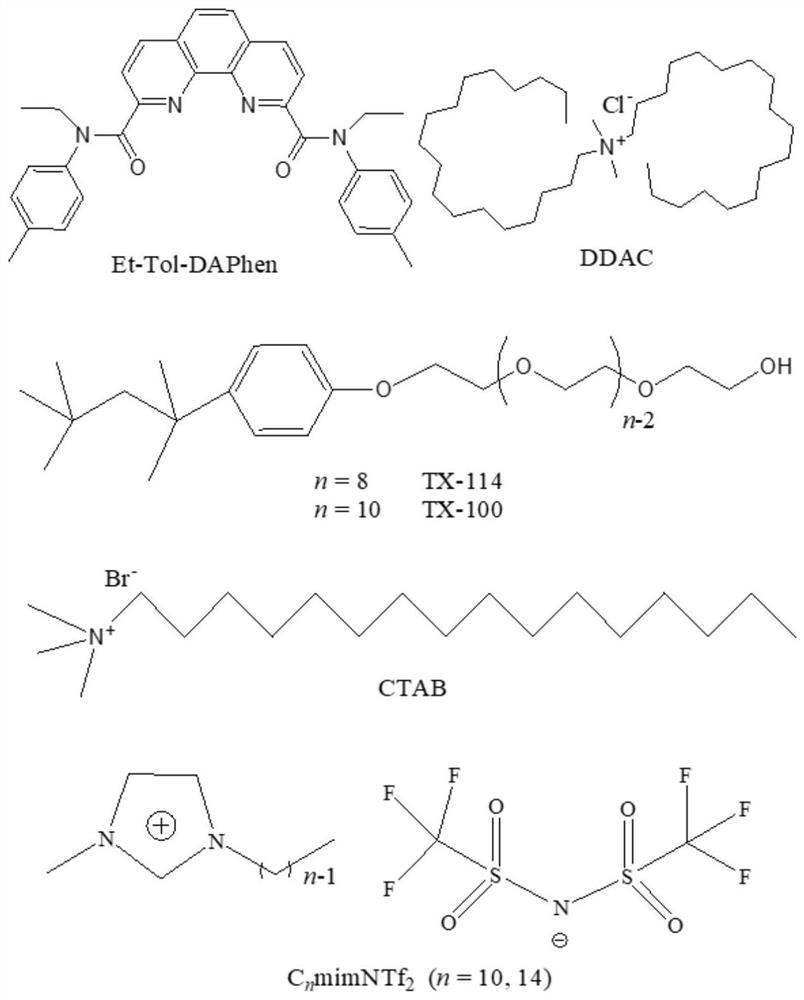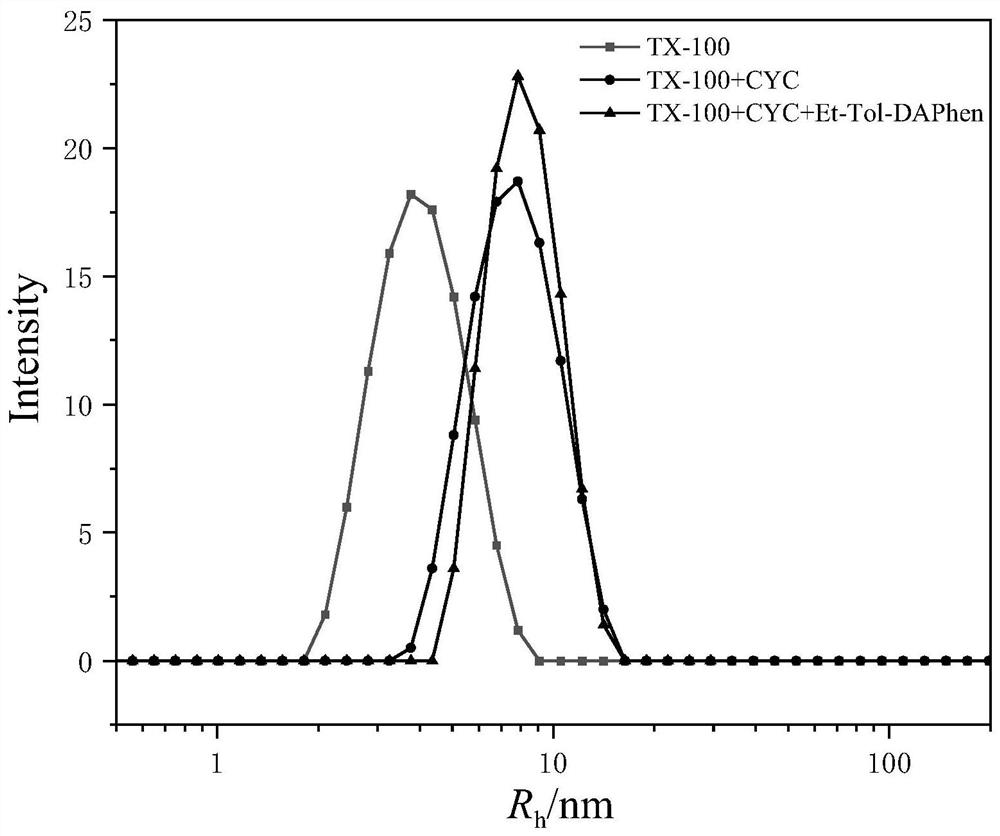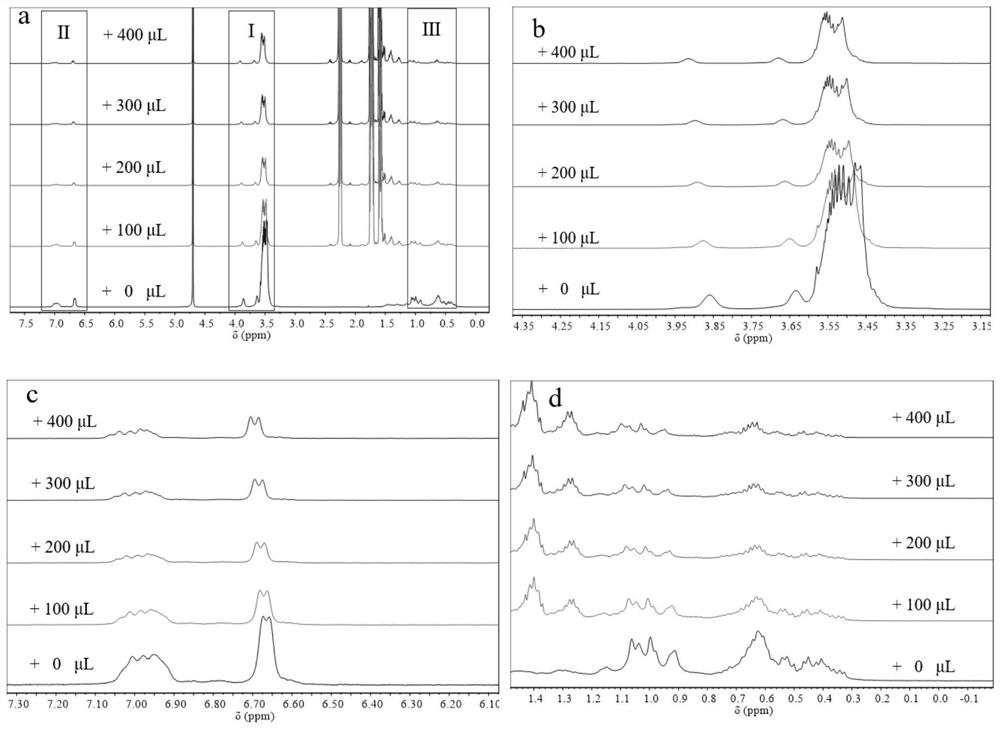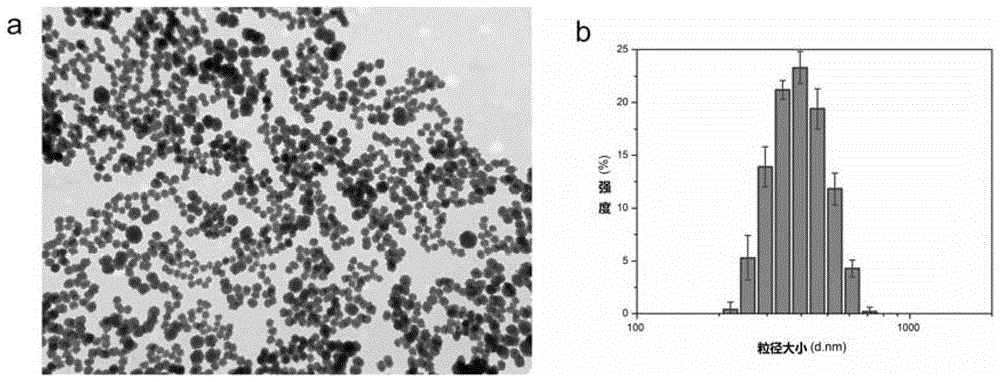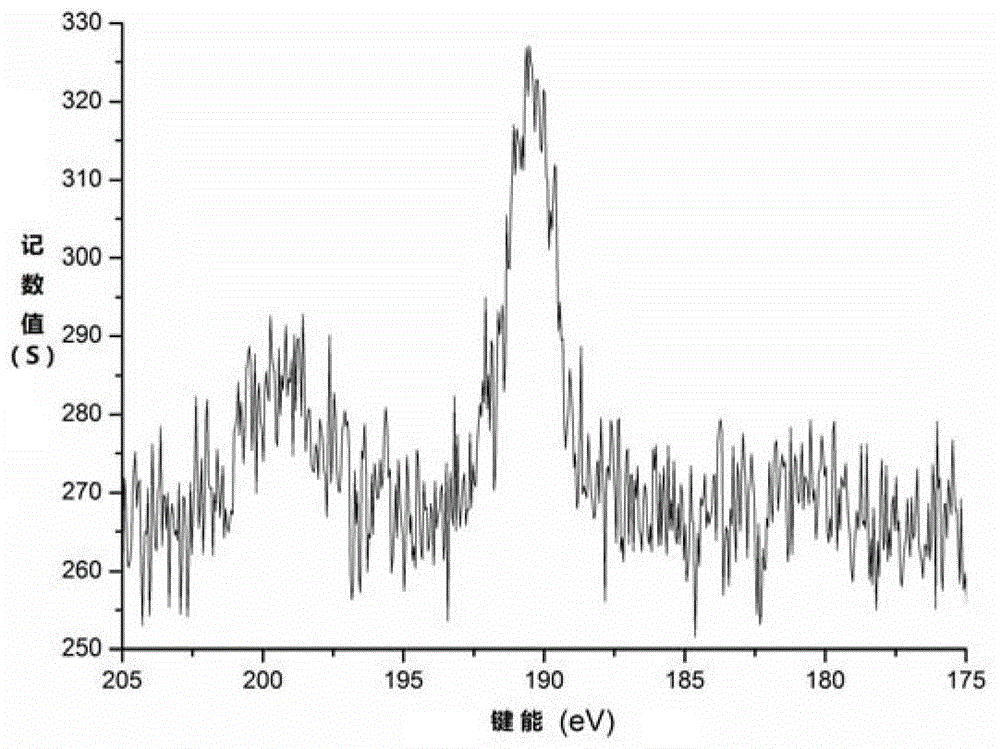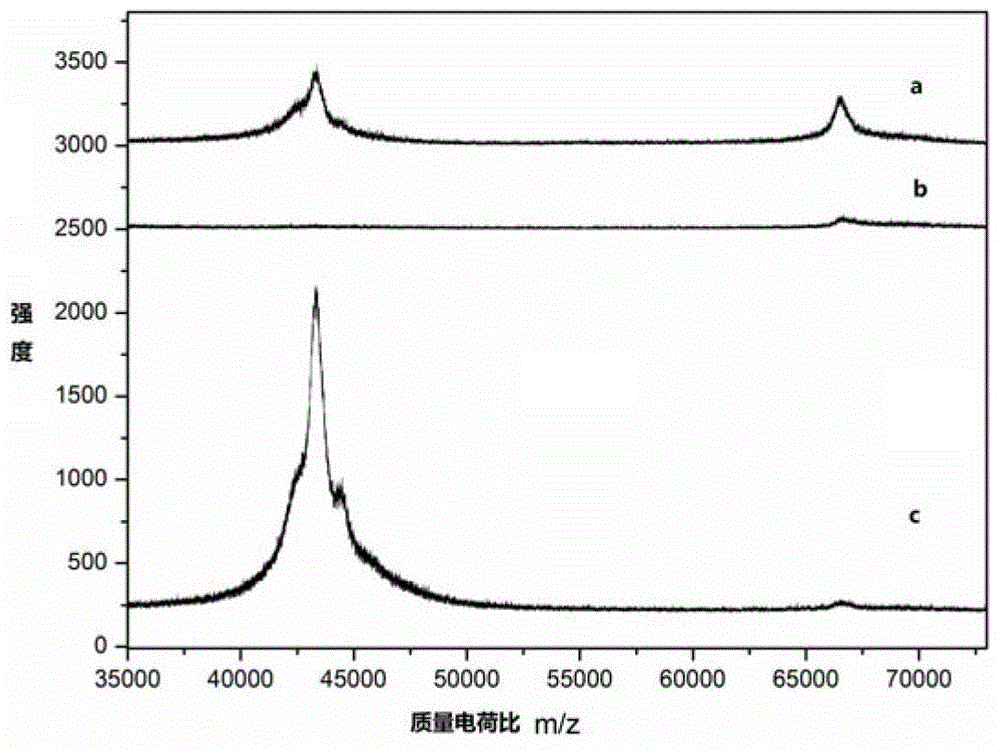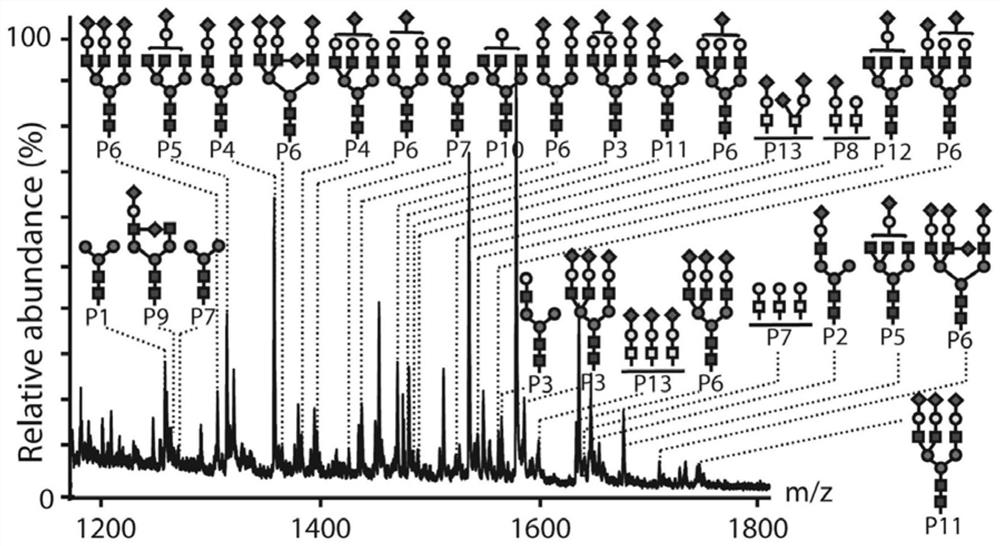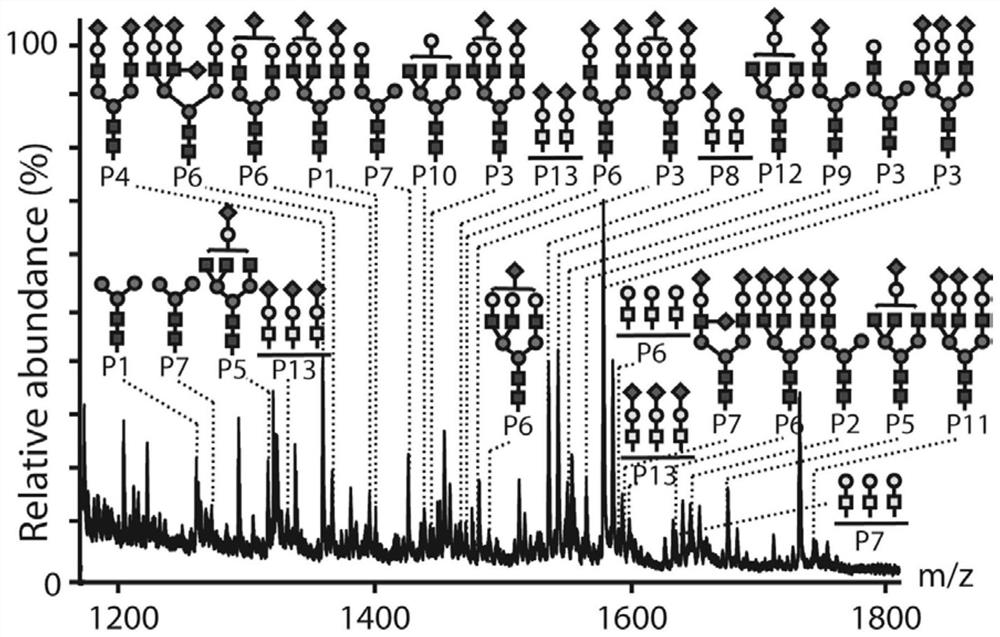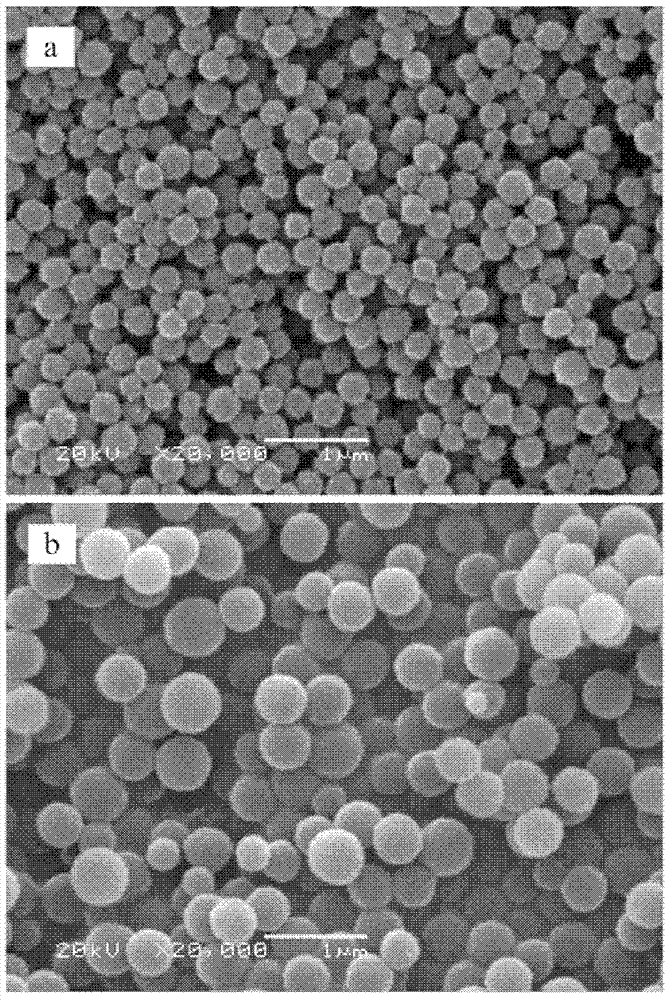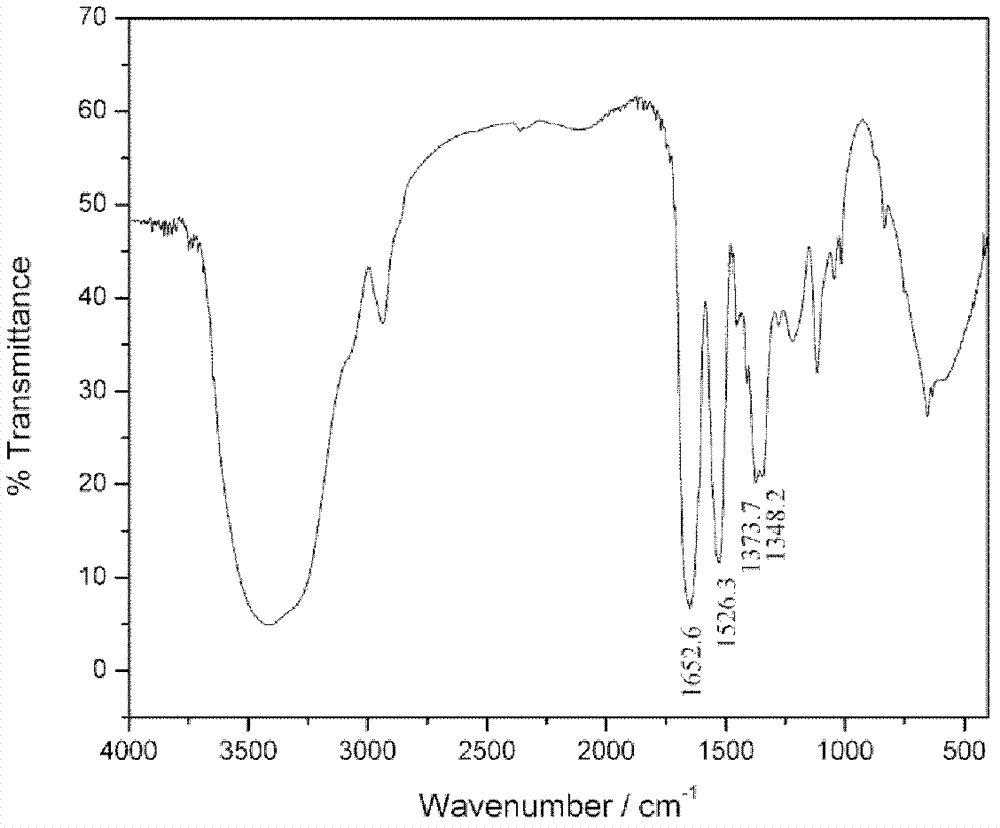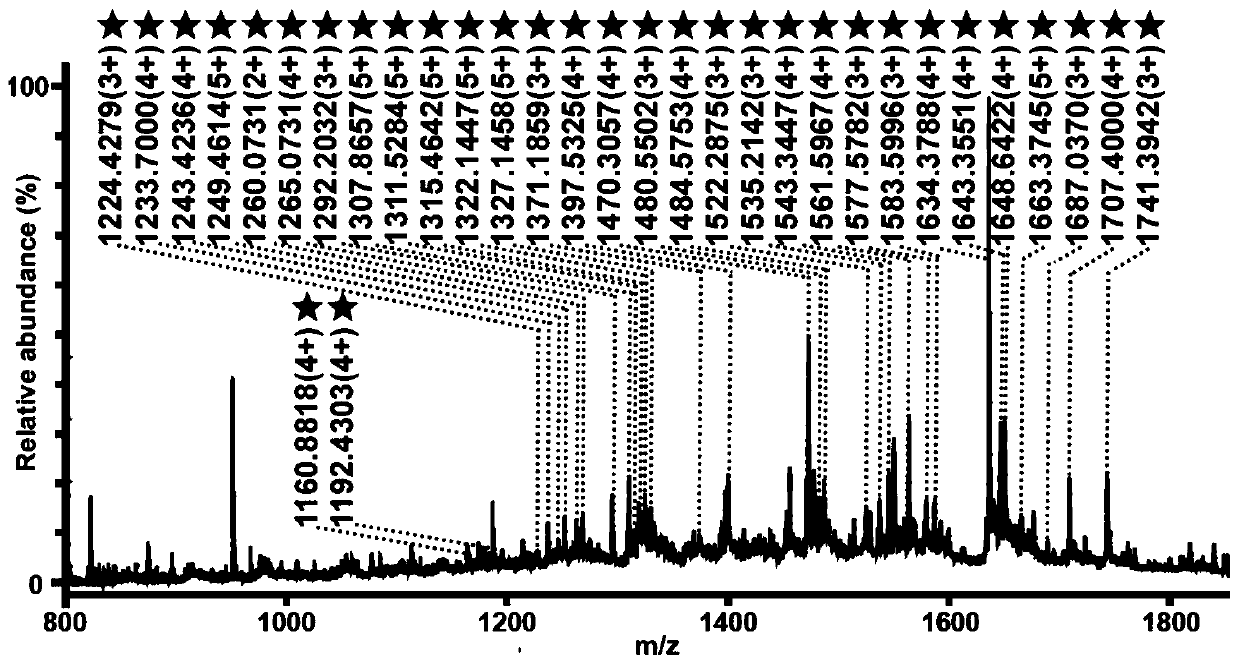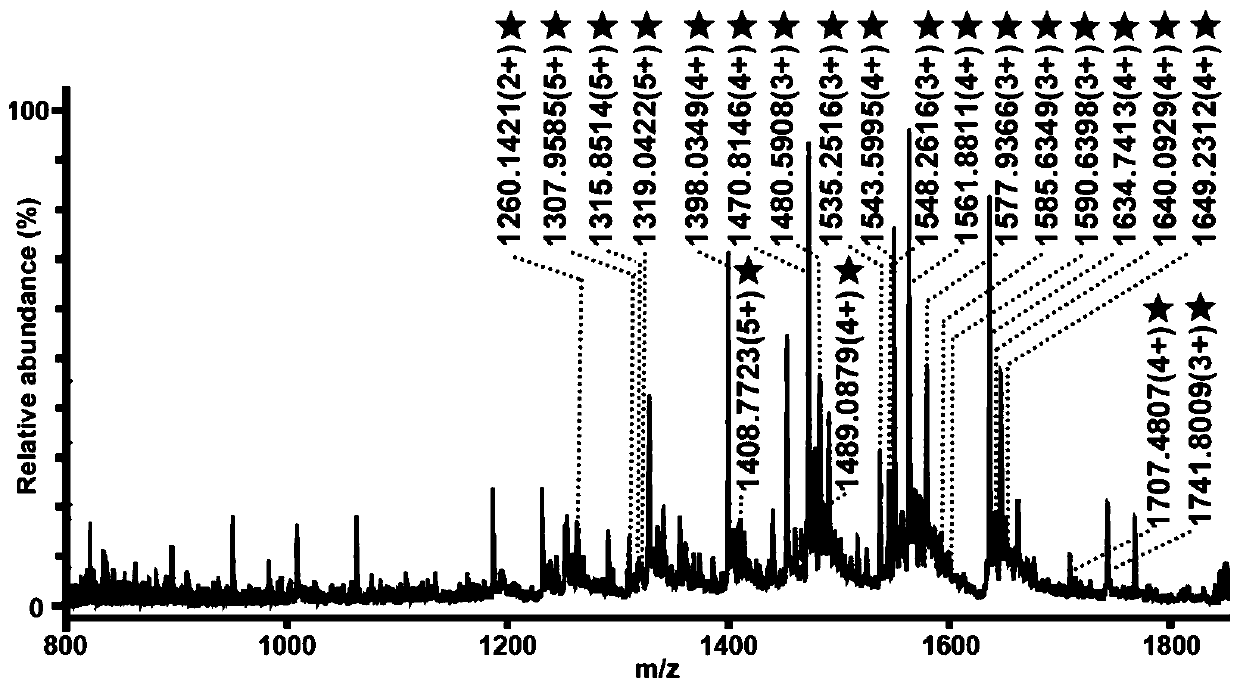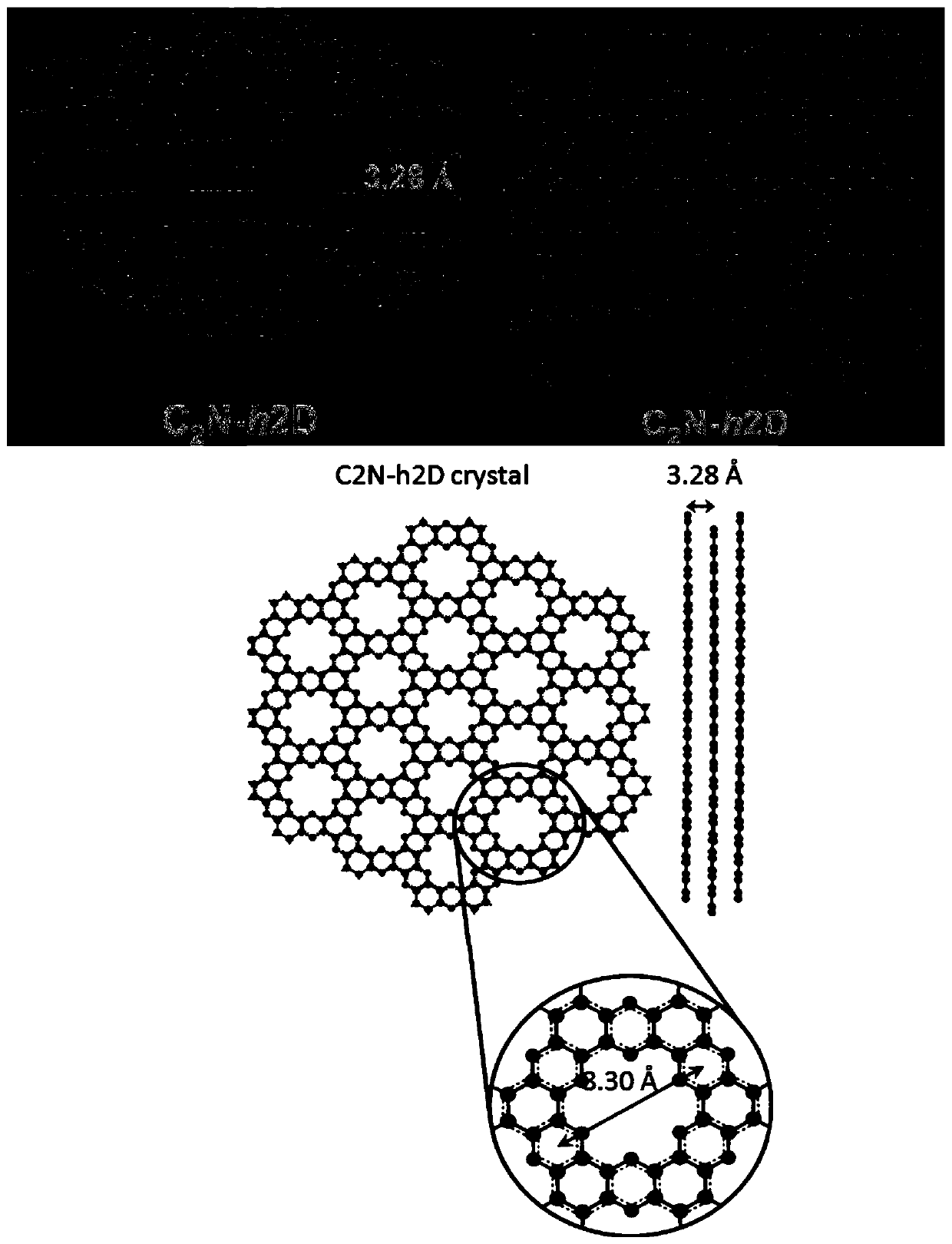Patents
Literature
41results about How to "Achieve selective enrichment" patented technology
Efficacy Topic
Property
Owner
Technical Advancement
Application Domain
Technology Topic
Technology Field Word
Patent Country/Region
Patent Type
Patent Status
Application Year
Inventor
Polymer microsphere, preparation and applications thereof
ActiveCN104072678AShorten the timeHigh reproducibility of responseIon-exchange process apparatusOther chemical processesFunctional monomerPolymer science
The invention relates to a mono-dispersed core-shell structure polymer nano particle, preparation and applications thereof. At first, monoene functional monomers and polyene crosslinking monomers are polymerized to generate polymer particles taken as the cores of the polymer microsphere, and then 3-acrylamino phenylboronic acid (APBA) and polyene crosslinking monomers are covered on the surface of the cores through a reversible addition-fragmentation chain transfer (RAFT) polymerization technology so as to obtain smooth core-shell polymer nano particles containing boronic acid functional groups. Phenylboronic acid functional groups are introduced to the material surface through a RAFT method, thus the defects existing in the conventional post modification method such as tedious steps, low reaction efficiency, and unstable morphology of direct polymerized products are avoided, moreover, the APBA can be more stably polymerized, and the bonding amount of boronic acid on the surface is increased at the same time. The polymer nano particle can be used to separate or enrich glycoprotein in a 1,2-cis-diol structure, and has a very good practical value and application prospect in fields like proteomics, etc.
Owner:DALIAN INST OF CHEM PHYSICS CHINESE ACAD OF SCI
Monodisperse core-shell structure polymer nano particle as well as preparation and application thereof
ActiveCN103304732ANarrow particle size distributionMonodisperseComponent separationOther chemical processesCross-linkPolymer science
The invention belongs to the technical field of high molecular materials and analysis and relates to a monodisperse core-shell structure polymer nano particle as well as preparation and application thereof. The polymer nano particle is a core-shell type copolymer of an acrylic acid cross-linking agent and a monoene phenylboronic acid functional monomer; and the polymer nano particle is prepared by using a one-pot method, that is, precipitation polymerization with the combination of in-situ package strategy. Synthesis steps of the conventional core-shell structure polymer particles are simplified, and the polymer nano particle has the characteristics of rapidness, convenience and easiness, low cost, multiple boric acid functional monomers on the surface, and the like. The polymer nano particle can be used for separating or enriching glycoprotein with a 1,2-cis-glycol structure, and has good practical values and application prospects in the fields of proteomics and the like.
Owner:DALIAN INST OF CHEM PHYSICS CHINESE ACAD OF SCI
Method for electrochemical detection of antibiotics in milk based on vertical and ordered micelle enrichment
ActiveCN105241944AHigh sensitivityWide detection linear rangeMaterial electrochemical variablesHydrophobic effectElectricity
The present invention discloses a method for electrochemical detection of antibiotics in milk based on vertical and ordered micelle enrichment. The method is characterized by comprising: diluting milk with an electrolyte solution so as to be adopted as a detected solution, adopting vertical and ordered CTAB micelle modified electrode as a working electrode, using an electrochemical voltammetry method, enriching antibiotics in the milk solution, and then detecting. According to the present invention, the vertical and ordered micelle modified electrode is adopted as the working electrode, the hydrophobic and electrically neutral antibiotics in the aqueous solution are extracted / enriched into the hydrophobic nanometer chambers of the surfactant micelles through the hydrophobic effect, and the reduction peak current of the antibiotics is adopted as the detection signal so as to achieve the quantitative detection in the complex milk background; and the constructed sensor integrated the pre-enrichment and the electrochemical detection, has characteristics of high sensitivity, wide linear detection range and low detection limit, and has great application potential in the food safety monitoring field.
Owner:ZHEJIANG UNIV
Micro-extraction monolithic column of ionic liquid polymer capillary tube and preparation method thereof
ActiveCN103833885AEnhanced mass transferHigh enrichment efficiencyOther chemical processesSolid sorbent liquid separationFunctional monomerEthyleneglycol dimethacrylate
The invention discloses a micro-extraction monolithic column of an ionic liquid polymer capillary tube and a preparation method thereof. The method comprises the following steps: by adopting imidazolium ionic liquids and dodecyl methacrylate as functional monomers, taking ethylene glycol dimethyl acrylic ester as a cross-linking agent, taking normal propyl alcohol and butanediol as pore-foaming agents and taking azodiisobutyronitrile as an initiator, evenly mixing the raw materials at room temperature in an oscillating manner, and injecting into a vinyl-modified quartz capillary tube; sealing, and carrying out thermal initiation one-step polymerization, so as to obtain the micro-extraction monolithic column of the ionic liquid polymer capillary tube in manners of cleaning and drying. The micro-extraction monolithic column is simple and convenient in synthetic process, controllable in reaction, and low in cost. The prepared micro-extraction column for the capillary tube has good permeability, porosity, and chemical and mechanical stability; a plurality of interaction sites such as an imidazole ring with positive electricity and different lengths of carbon chains and the like are formed on the surface; the micro-extraction monolithic column has good extraction ability on the substances such as phenolic environmental hormone and the like, and is quick to extract, and easy to build an analysis method with high sensitivity by combining with capillary electrochromatography.
Owner:FUZHOU UNIV
Ultrathin lamellar functionalized molybdenum disulfide nanocomposite material and its application in glycopeptide enrichment
ActiveCN107727480AHigh specific surface areaThe synthesis method is simplePreparing sample for investigationChemical reactionBoronic acid
The invention discloses an ultrathin lamellar functionalized molybdenum disulfide nanocomposite material and its application in glycopeptide enrichment. A glycopeptide enrichment material utilizes anultrathin two-dimensional lamellar structure molybdenum disulfide nano-material as a matrix. After surface modification with nano-gold, through a simple and stable Au-S bond chemical reaction, a mercapto-containing glycopeptide enrichment functional group is loaded. An experimental result shows that the functionalized molybdenum disulfide-nano-noble metal composite material and glycopeptides produce hydrophobic interaction or through a reversible reaction of the boronic acid group supported on the surface of the material and the sugar chain of the glycopeptides, the functional material realizes the highly selective enrichment of glycopeptides. The functionalized molybdenum disulfide-nano-noble metal composite material is prepared through simple processes under mild reaction conditions.
Owner:ACADEMY OF MILITARY MEDICAL SCI
Selective enrichment method of anthocyanin compounds in Lycium ruthenicum
ActiveCN106198172AAchieve selective enrichmentImplement class separationPreparing sample for investigationAlcoholEnrichment methods
The invention discloses a selective enrichment method of anthocyanin compounds in Lycium ruthenicum. The method concretely comprises the following steps: anthocyanin compounds are eluted at a condition with low pH, in order to guarantying stability of the compounds; an acidified alcohol extract product of Lycium ruthenicum is separated by macroporous resin with weak polarity, in order to obtain a Lycium ruthenicum sample; the obtained Lycium ruthenicum sample passes a strong cation exchange solid phase extraction column of the Lycium ruthenicum sample is obtained, and an anthocyanin compound crude component in the sample is enriched; the obtained anthocyanin compound crude component is desalinated by macroporous resin with weak polarity in order to prepare a refined component. The method can be used for realizing selective enrichment of anthocyanin compounds in a complex system, solving the problem that the compound and impurities flow out together on an anti-phase material, and realizing separation of the kind of the compounds. A new method for selective enrichment of anthocyanin compound is established, and a technical support for in-depth research of biological activity of the compounds is provided.
Owner:TAIZHOU GUOKEHUAWU BIOMEDICAL TECH CO LTD
Modified mesoporous silica adsorbent and preparation method and application thereof
ActiveCN105617979ALarge specific surface areaImprove hydrophilicityOther chemical processesProcess efficiency improvementSorbentMesoporous silica
The invention relates to a modified mesoporous silica adsorbent and a preparation method and application thereof. Under the catalysis of potassium carbonate and potassium iodide, aza-macrocyclic ligand is modified onto the surface of chlorine group functional mesoporous silica through nucleophilic substitution, and the adsorbent is prepared; palladium recycling and enrichment under different nitric acid concentrations are achieved through the adsorbent, and the selective recovery performance of palladium in highly-active effluent simulated feed liquid is evaluated. According to the modified mesoporous silica adsorbent, mesoporous nanomaterials are combined with the supermolecule recognition performance of the aza-macrocyclic ligand, the problems that selectivity is poor, operation is complex, the raw material cost is high and the stability is poor in the traditional treatment technology for palladium in highly-active effluent are solved, and the adsorbent has the advantages of being good in selectivity, large in adsorption capacity, high in adsorption speed and easy to recycle for palladium within the wide nitric acid concentration range, and has the great practical significance in the aspects of nuclear fuel reprocessing and hydrometallurgy.
Owner:TSINGHUA UNIV
Preparation method of interstitial boron doping titanium dioxide photocatalytic material and application
InactiveCN108452788AEfficient enrichmentRapid oxidation kineticsMaterial nanotechnologyPhysical/chemical process catalystsPhenolAdsorption effect
The invention relates to a preparation method of an interstitial boron doping titanium dioxide photocatalytic material and application. An interstitial boron doping TiO2 nanometer photocatalyst can beprepared by a low-temperature sol-gel method, wherein the interstitial boron ions have an effect of serving as Lewis acid sites on the catalyst surface, and the adsorption effect on Lewis alkaline phenol is greatly enhanced. Compared with the prior art, the preparation method disclosed by the invention has the advantages that adsorption of phenol in water can be effectively enhanced, the selective adsorption aim can be achieved by virtue of different chemical configuration adsorption effects, and finally the aim of rapidly oxidizing targeted pollutants is achieved by virtue of a photocatalytic oxidation technology. The method is simple, feasible, obvious in enhanced adsorption effect, high in selectivity and high in catalytic efficiency.
Owner:TONGJI UNIV
Phosphopeptide enriching material and preparation method and application thereof
InactiveCN106749884AHigh selectivityImprove throughputPeptide preparation methodsAtom-transfer radical-polymerizationPhosphopeptide
The invention relates to the field of material analysis chemistry and organic chemistry. The invention provides a phosphopeptide enriching material and a preparation method and application thereof. The phosphopeptide enriching material comprises a substrate and a double-ingredient copolymer layer formed on the surface of the substrate, wherein the thickness of the double-ingredient copolymer layer is 10 to 80nm. The surface initiation-atom transfer free radical polyreaction mechanism is utilized; the double-ingredient copolymers are grafted on the surface of the substrate. The material and column solid phase extraction mode or dispersion solid phase extraction mode are organically combined; the enriching with high selectivity, high repetitiveness and high flux of phosphopeptide in a complicated mixture can be realized, so that the selective enriching of the multi-phosphopeptide and mono-phosphopeptide can be realized; the phosphorylated protein identification number can be obviously improved. Therefore the phosphopeptide enriching material is hopeful to be widely applied to the aspects of phosphopeptide enriching, further large-scale separation of phosphorylated protein and the like.
Owner:WUHAN UNIV OF TECH +1
Method for enriching glycopeptide and simultaneously enriching glycopeptide and phosphorylated peptide by using metal oxide
InactiveCN102070701AAchieve selective enrichmentUniversalPeptide preparation methodsSolid phase extractionHigh selectivity
The invention discloses a method for enriching glycopeptide and simultaneously enriching glycopeptide and phosphorylated peptide by using a metal oxide. The method is characterized in that: the metal oxide is used as a solid-phase extraction material for separating and enriching the glycopeptide from protein enzymolysis solution, and simultaneous enrichment of the phosphorylated peptide and the glycopeptide can be realized in a sample by using simple operation. Specifically, the method comprises the following steps of: mixing the metal oxide and the sample under a neutral or weak acid condition, eluting the mixture under an acid condition to obtain the glycopeptide, and eluting the mixture under an alkali condition to obtain the phosphorylated peptide. The method can realize high-efficiency and high-selectivity enrichment of the phosphorylated peptide and the glycopeptide in the same sample.
Owner:DALIAN INST OF CHEM PHYSICS CHINESE ACAD OF SCI
Preparation of Attapulgite Capillary Monolithic Column and Its Application in Solid Phase Microextraction
InactiveCN105148559BHigh mechanical strengthImprove permeabilityComponent separationOther chemical processesWater bathsSilanes
The invention provides a preparation method of an embedded attapulgite capillary monolithic column. The method comprises the following steps of mixing acidified attapulgite and an organic polymer solution at a mass ratio being 1:100 to 5:100; performing magnetic stirring for 1 to 5 hours at the normal temperature so that the acidified attapulgite is completely dispersed; then, injecting the material into a quartz capillary treated by gamma-2-methyl propyl trimethoxy silane; sealing the material; then putting the materials into a constant-temperature water bath pot for reaction for 16 to 24h at 60 to 85 DEG C; after the reaction is completed, using acetonitrile and water for flushing; preparing the material for use. The natural attapulgite nanometer materials are embedded into an organic polymer monolithic material for the first time; the embedded attapulgite capillary monolithic column is prepared. The preparation method has the advantages that the simplicity is realized; the cost is low; the reaction condition can be easily controlled; the prepared embedded attapulgite capillary monolithic column has higher mechanical intensity and higher permeability; when the prepared embedded attapulgite capillary monolithic column is used as an adsorbing agent to be applied to solid micro extraction, the advantages of great adsorption volume, high recovery yield, good reproducibility, low detection limit and the like are realized. The preparation method is applicable to the sample pretreatment of polar small-molecular compounds.
Owner:NINGBO UNIVERSITY OF TECHNOLOGY
Selective enrichment method for dicaffeylspermine type compound in fructus lycii
ActiveCN109810014AAchieve selective enrichmentImplement class separationCation exchanger materialsOrganic anion exchangersHydrogenEnrichment methods
The invention discloses a selective enrichment method for a dicaffeylspermine type compound in fructus lycii. Specifically, the selective enrichment method comprises the following steps: eluting the dicaffeylspermine type compound under a low pH (Potential of Hydrogen) condition to ensure the stability of the compound; carrying out a strong cation exchange solid-phase extraction method on fructuslycii ethanol extract and separating to obtain a dicaffeylspermine coarse component; then carrying out inversed-phase and solid-phase extraction column desalting on the obtained dicaffeylspermine typecomponent and preparing a fine component. According to the method disclosed by the invention, selective enrichment of the dicaffeylspermine type compound in a complicated system can be realized, theproblem that the compound and impurities are co-eluted on an inversed-phase material is solved and classified separation of the compound is realized. Therefore, the invention establishes the selectiveenrichment method for the dicaffeylspermine type compound and technical supports are provided for new drug research and development of the compound.
Owner:DALIAN INST OF CHEM PHYSICS CHINESE ACAD OF SCI
Synthesis method and application of GO@CS@ZIF-8 foam material
ActiveCN113721028AAchieve selective enrichmentHigh selectivityOther chemical processesBiological testingProtein targetGlycopeptide
The invention relates to a synthesis method and application of a GO@CS@ZIF-8 foam material. The preparation method comprises the following steps of: 1, dissolving graphene oxide in a solvent, carrying out ultrasonic dispersion, adding chitosan and a glutaraldehyde aqueous solution while performing stirring, and carrying out freeze drying after reaction; and 2, adding a product in the step 1 into a methanol solution of zinc nitrate hexahydrate, adding a methanol solution of 2-methylimidazole while stirring, and carrying out a stirring reaction on the obtained mixed solution at room temperature to obtain the GO@CS@ZIF-8 foam material. The invention relates to a glycopeptide and phosphorylated peptide enrichment and mass spectrometric detection method. The method comprises the following steps of: 1, dissolving target protein in an NH4HCO3 solution for enzymolysis for 16 hours; 2, preparing a dispersion liquid from the GO@CS@ZIF-8 foam material by using a buffer solution; 3, adding target peptide into the dispersion liquid, performing mixing, oscillating and enriching; 4, centrifuging the dispersion liquid, removing supernate, and performing washing with the buffer solution; 5, eluting the target peptide with eluent; and 6, carrying out mass spectrometry on the eluent subjected to elution.
Owner:NINGBO UNIV
Synthesis method and application of Fe (II)-based specific MRI contrast agent
PendingCN114181164AEnabling Quantitative MRI ImagingIncrease concentrationOrganic chemistryAnalysis using nuclear magnetic resonancePhosphoric Acid EstersMeth-
The invention discloses a synthesis method and application of a Fe (II)-based specific MRI contrast agent, and the synthesis method comprises the following steps: carrying out a reaction on tBut-DOTAGA, N, N-diisopropylethylamine DIPEA, 2-(7-azabenzotriazole)-N, N, N ', N'-tetramethylurea hexafluorophosphate HATU and 5-hydroxy-2-adamantanone to synthesize a first compound; performing reaction synthesis on the first compound, a pyridine solution and methoxy ammonia hydrochloride to obtain a second compound; introducing ozone gas into the second compound under an anaerobic condition, and carrying out column separation to obtain a third compound Fer-DOTA; and stirring the third compound and trifluoroacetic acid (TFA) for reaction, adjusting the pH value, adding gadolinium chloride GdCl3 for stirring reaction, and performing high performance liquid chromatography separation to obtain the Fe (II)-based specific MRI contrast agent. Gd-DOTA is covalently bound to a Fe (II) selective group through a chemical bond, so that the Gd-DOTA has Fe (II) selective enrichment capacity, Fe (II) responsive enrichment of Gd-DOTA is realized, and the contrast agent concentration and T1WI signal intensity of a Fe (II)-rich tissue are improved in a targeted manner, so that spatial and temporal distribution of Fe (II) in an ICH edema region is established, and quantitative MRI imaging of Fe (II) is realized.
Owner:ZHONGNAN HOSPITAL OF WUHAN UNIV
Method for enriching glycopeptide and simultaneously enriching glycopeptide and phosphorylated peptide by using metal oxide
InactiveCN102070701BAchieve selective enrichmentUniversalPeptide preparation methodsGlycopeptideSolid phase extraction
Owner:DALIAN INST OF CHEM PHYSICS CHINESE ACAD OF SCI
Pretreatment method for determination of content of cadmium metal in rice
InactiveCN106596424AGood effectThe test method is convenient and easyColor/spectral properties measurementsCadmium ionPretreatment method
The invention provides a pretreatment method for determination of the content of cadmium metal in rice; sodium diethyldithiocarbamate is chelated with cadmium ions to generate cadmium diethyldithiocarbamate, the chelate compound after chelating is extracted by carbon tetrachloride, the cadmium metal ions are selectively enriched, interference of other metal ions is eliminated, and thus the cadmium ions are selectively accurately measured.
Owner:DALIAN UNIV OF TECH QINGDAO NEW ENERGY MATERIALS TECH RES INST CO LTD
A kind of modified mesoporous silica adsorbent and its preparation method and application
ActiveCN105617979BLarge specific surface areaImprove hydrophilicityOther chemical processesProcess efficiency improvementSorbentMesoporous silica
The invention relates to a modified mesoporous silica adsorbent and a preparation method and application thereof. Under the catalysis of potassium carbonate and potassium iodide, aza-macrocyclic ligand is modified onto the surface of chlorine group functional mesoporous silica through nucleophilic substitution, and the adsorbent is prepared; palladium recycling and enrichment under different nitric acid concentrations are achieved through the adsorbent, and the selective recovery performance of palladium in highly-active effluent simulated feed liquid is evaluated. According to the modified mesoporous silica adsorbent, mesoporous nanomaterials are combined with the supermolecule recognition performance of the aza-macrocyclic ligand, the problems that selectivity is poor, operation is complex, the raw material cost is high and the stability is poor in the traditional treatment technology for palladium in highly-active effluent are solved, and the adsorbent has the advantages of being good in selectivity, large in adsorption capacity, high in adsorption speed and easy to recycle for palladium within the wide nitric acid concentration range, and has the great practical significance in the aspects of nuclear fuel reprocessing and hydrometallurgy.
Owner:TSINGHUA UNIV
A kind of preparation method and application of high-efficiency adsorption material of bisphenol compounds
ActiveCN110841599BHigh enrichment efficiencyAchieve selective enrichmentOther chemical processesWater contaminantsFunctional monomerOrganosolv
The invention belongs to the technical field of preparation technology for adsorption and enrichment materials and detection methods for bisphenol compounds, and relates to a preparation method and application of a high-efficiency adsorption material for bisphenol compounds. The preparation method comprises: fully mixing the mixed functional monomer and the hydrophilic organic framework material in an organic solvent, adding a cross-linking agent and an initiator, deoxidizing, and heating to react to obtain the bisphenol compound adsorbent. composite material. The composite material prepared by the invention has stable chemical properties, good hydrophilicity, high porosity and strong adsorption performance for bisphenol chemicals. The cost of raw materials used in the present invention is low, the material preparation process is simple, the adsorption rate is fast, the adsorption capacity is high, and it is convenient for recycling. As an efficient adsorption material, it can be used for the rapid enrichment and removal of bisphenol compounds in the water environment, and can also be used The extraction agent in the pretreatment process is combined with instrument analysis to establish a highly sensitive detection method for bisphenols.
Owner:SHANDONG AGRICULTURAL UNIVERSITY
A phosphorylated peptide enrichment material and its preparation method and application
InactiveCN106749884BHigh selectivityImprove throughputPeptide preparation methodsHigh fluxAtom-transfer radical-polymerization
The invention relates to the field of material analysis chemistry and organic chemistry. The invention provides a phosphopeptide enriching material and a preparation method and application thereof. The phosphopeptide enriching material comprises a substrate and a double-ingredient copolymer layer formed on the surface of the substrate, wherein the thickness of the double-ingredient copolymer layer is 10 to 80nm. The surface initiation-atom transfer free radical polyreaction mechanism is utilized; the double-ingredient copolymers are grafted on the surface of the substrate. The material and column solid phase extraction mode or dispersion solid phase extraction mode are organically combined; the enriching with high selectivity, high repetitiveness and high flux of phosphopeptide in a complicated mixture can be realized, so that the selective enriching of the multi-phosphopeptide and mono-phosphopeptide can be realized; the phosphorylated protein identification number can be obviously improved. Therefore the phosphopeptide enriching material is hopeful to be widely applied to the aspects of phosphopeptide enriching, further large-scale separation of phosphorylated protein and the like.
Owner:WUHAN UNIV OF TECH +1
Method for increasing mass spectrum identification number of protein and/or peptide fragment group by using polystyrene material
PendingCN114034791AAchieve selective enrichmentAvoid interferenceComponent separationCentrifugationPolystyrene
The invention discloses a method for improving the mass spectrum identification number of a protein and / or peptide fragment group by using a polystyrene material. The method comprises the following steps of: adding a binding buffer solution into a sample to be detected, and adding the polystyrene material to obtain a suspension; incubating the suspension, performing high-speed centrifugation, removing supernate, and retaining a precipitate I; re-suspending the precipitate I by using a cleaning buffer solution to obtain a re-suspension, centrifuging the re-suspension at a high speed, removing a supernatant, retaining a precipitate II, and repeating the step for several times; and preparing the precipitate II into a proteome / peptide fragment group sample, and carrying out mass spectrometric detection. The polystyrene material and the corresponding buffer solutions are adopted, different kinds of serum / plasma proteins and peptide fragments can be effectively adsorbed, selective enrichment of low-abundance proteins and peptide fragments in serum / plasma is achieved, interference of high-abundance proteins in the serum / plasma on identification of the low-abundance proteins during mass spectrum identification is effectively avoided. The method can be used for identifying various protein spectrums.
Owner:PROTEINT (TIANJIN) BIOTECHNOLOGY CO LTD
Preparation and application of a guanidinium-immobilized affinity magnetic sphere with core-shell structure
ActiveCN104877091BAchieve selective enrichmentEasy to separateComponent separationMaterial analysis by electric/magnetic meansMethacrylateΑ casein
Owner:SOOCHOW HIGH TECH CHROMATOGRAPHY
Fluorescent probe based on lanthanide ion hybrid covalent organic framework material as well as preparation method and application of fluorescent probe
PendingCN114702953AImprove stabilityImprove uniformityFluorescence/phosphorescenceLuminescent compositionsFluoProbesCarboxyl radical
The invention discloses a fluorescent probe based on a lanthanide ion hybrid covalent organic framework material as well as a preparation method and application thereof. The lanthanide ion hybrid covalent organic framework material is prepared from a carboxylated imine type covalent organic framework and europium chloride hexahydrate through a coordination reaction; according to the lanthanide ion hybrid covalent organic framework material disclosed by the invention, not only is the strong affinity of a covalent organic framework to target molecules extracted and enriched, the sensitivity is improved, but also carboxylate radicals are coordinated with lanthanide ions, a new fluorescence center is formed, and environmental interference is reduced. The constructed lanthanide ion hybrid covalent organic framework material can be used for constructing a high-performance fluorescent probe which is high in sensitivity, high in selectivity and high in stability and is used for detecting tetracycline.
Owner:CHINA JILIANG UNIV
A method for analyzing sulfonamides by magnetic solid-phase extraction combined with isotope dimethylation labeling
InactiveCN106645449BAchieve adsorptionAchieve selective enrichmentComponent separationMagnetic carbonSulfanilamide
The invention provides a method for analyzing sulfonamide substances by magnetic solid-phase extraction and isotope dimethyl mark. The method includes the steps: taking magnetic carbon nano-particles as extraction materials; dispersing the materials in sample solution with sulfanilamide; enriching sulfonamide compounds in samples to the surfaces of the magnetic carbon nano-particles by the aid of a solid-phase extraction method; performing dimethyl mark for sulfonamide compound normal positions adsorbing on the surfaces of the materials; eluting and collecting marked samples; analyzing the eluted and collected samples by the aid of an LC-MS (liquid chromatography-mass spectrometry) to obtain results. The new method has the advantages that trace sulfonamide compounds in water are quantitatively analyzed on magnetic nano-spheres by a dimethyl mark method and the LC-MS, the method is simple and convenient to operate, rapid in analyzing, and trace sulfonamide substances in environmental media can be accurately and quantitatively analyzed.
Owner:DALIAN UNIV OF TECH
Application method of hydrophobic extractant in cloud point extraction system
ActiveCN112342380BAchieve selective enrichmentAvoid it happening againProcess efficiency improvementEnvironmental engineeringMicroemulsion
The invention discloses an application method of a hydrophobic extractant in a cloud point extraction system. The extractant is carried into the cloud point extraction system by forming an O / W microemulsion, which skillfully solves the problem of poor water solubility of the extractant. The problem of being unable to solubilize in the system has successfully realized the selective enrichment of target ions by the cloud point extraction system. The invention realizes the application of hydrophobic extractant in the cloud point extraction system for the first time, and the cloud point extraction technology can still selectively enrich the target actinide ions under the interference of many lanthanide ions, which is efficient and fast, and avoids a large amount of organic waste The production of liquid reduces environmental pollution, simplifies the post-processing process, and reduces post-processing costs. In addition, the combined use of ICP-MS can also realize the rapid and accurate detection of trace target ions, which can form a universal separation and analysis method.
Owner:PEKING UNIV
Method for analyzing sulfonamide substances by magnetic solid-phase extraction and isotope dimethyl mark
InactiveCN106645449AAchieve adsorptionAchieve selective enrichmentComponent separationMagnetic carbonSulfanilamide
The invention provides a method for analyzing sulfonamide substances by magnetic solid-phase extraction and isotope dimethyl mark. The method includes the steps: taking magnetic carbon nano-particles as extraction materials; dispersing the materials in sample solution with sulfanilamide; enriching sulfonamide compounds in samples to the surfaces of the magnetic carbon nano-particles by the aid of a solid-phase extraction method; performing dimethyl mark for sulfonamide compound normal positions adsorbing on the surfaces of the materials; eluting and collecting marked samples; analyzing the eluted and collected samples by the aid of an LC-MS (liquid chromatography-mass spectrometry) to obtain results. The new method has the advantages that trace sulfonamide compounds in water are quantitatively analyzed on magnetic nano-spheres by a dimethyl mark method and the LC-MS, the method is simple and convenient to operate, rapid in analyzing, and trace sulfonamide substances in environmental media can be accurately and quantitatively analyzed.
Owner:DALIAN UNIV OF TECH
A kind of polymer microsphere and its preparation and application
ActiveCN104072678BShorten the timeHigh reproducibility of responseIon-exchange process apparatusOther chemical processesPolymer scienceFunctional monomer
The invention relates to a polymer nanoparticle with monodisperse core-shell structure and its preparation and application. The polymer particles prepared by polymerization of monoene functional monomers and polyene crosslinking monomers are used as the core, and then 3-acrylamidophenylboronic acid is coated on the surface of the core by reversible addition-fragmentation chain transfer (RAFT) polymerization technology (APBA) and polyene cross-linked monomers to form polymer nanoparticles with a smooth surface and a core-shell structure with boric acid functional groups. The present invention introduces phenylboronic acid functional groups on the surface of the material through the RAFT method, which not only overcomes the shortcomings of traditional post-modification methods such as cumbersome steps, low reaction efficiency, and unstable product morphology during direct polymerization, but also enables APBA to polymerize more stably and improve the surface Amount of boric acid bonded. The polymer nanoparticle of the present invention can be used for separating or enriching glycoproteins with 1,2-cis-diol structure, and has good practical value and application prospect in the fields of proteomics and the like.
Owner:DALIAN INST OF CHEM PHYSICS CHINESE ACAD OF SCI
A Glycopeptide Enrichment Method Based on Amphiphilic Porous Core-Shell Microspheres
ActiveCN108148112BAchieve selective enrichmentSimple processPeptide preparation methodsMicrosphereEnrichment methods
The invention discloses a glycopeptide enrichment method based on amphipathic porous nuclear shell microspheres. The method includes the steps of firstly, conducting activating with an eluant 1 and balancing with a sample loading solution 1 on large-pore nuclear shell microspheres in sequence by means of a dispersed solid-phase extraction mode, dissolving a sample in the sample loading solution 1,mixing the solution with the balanced large-pore nuclear shell microspheres, conducting incubating and centrifuging to obtain supernate 1, and spin-drying the supernate 1 to obtain powder 1; secondly, conducting flushing with an eluant 2 and balancing with a sample loading solution 2 on the large-pore nuclear shell microspheres in sequence by means of a dispersed solid-phase extraction mode, dissolving the powder obtained through spin-drying in the first step in the sample loading solution 2, mixing the solution with the balanced small-pore nuclear shell microspheres, conducting incubating and centrifuging, abandoning supernate to obtain precipitates 2, flushing the precipitates 2 with leacheate 2, conducting centrifuging again after oscillating, abandoning supernate to obtain small-porenuclear shell microspheres adsorbing glycopeptides, eluting the glycopeptides adsorbed on the small-pore nuclear shell microspheres with the eluant 2, and concentrating the glycopeptides. The method is widely suitable for concentrating a trace amount of glycopeptides in a large amount of protein and non-glycopeptide samples.
Owner:TECHNICAL INST OF PHYSICS & CHEMISTRY - CHINESE ACAD OF SCI
A method for selective enrichment of dicaffeoylspermidine compounds in Lycium barbarum
ActiveCN109810014BAchieve selective enrichmentImplement class separationCation exchanger materialsOrganic anion exchangersNew medicationsMedicine
The invention discloses a selective enrichment method for dicaffeoylspermide compounds in Lycium barbarum. Specifically, the dicaffeoylspermidine compounds are eluted under low pH conditions to ensure that such compounds The stability of the compound, the ethanol extract of Lycium barbarum was separated by strong cation exchange solid phase extraction to obtain the crude dicaffeoylspermide component, and then the obtained dicaffeoylspermide component was subjected to reversed-phase solid-phase extraction. Extraction column is desalted to prepare refined components; this method can realize the selective enrichment of dicaffeoylspermidine compounds in complex systems, solve the problem of "co-elution" of such compounds and impurities on reversed-phase materials, and realize Class separation of this class of compounds. Therefore, the present invention establishes a new method for the selective enrichment of dicaffeoylspermide compounds, providing technical support for the research and development of new drugs of such compounds.
Owner:DALIAN INST OF CHEM PHYSICS CHINESE ACAD OF SCI
Monodisperse core-shell structure polymer nano particle as well as preparation and application thereof
ActiveCN103304732BNarrow particle size distributionMonodisperseComponent separationOther chemical processesCross-linkPolymer science
The invention belongs to the technical field of high molecular materials and analysis and relates to a monodisperse core-shell structure polymer nano particle as well as preparation and application thereof. The polymer nano particle is a core-shell type copolymer of an acrylic acid cross-linking agent and a monoene phenylboronic acid functional monomer; and the polymer nano particle is prepared by using a one-pot method, that is, precipitation polymerization with the combination of in-situ package strategy. Synthesis steps of the conventional core-shell structure polymer particles are simplified, and the polymer nano particle has the characteristics of rapidness, convenience and easiness, low cost, multiple boric acid functional monomers on the surface, and the like. The polymer nano particle can be used for separating or enriching glycoprotein with a 1,2-cis-glycol structure, and has good practical values and application prospects in the fields of proteomics and the like.
Owner:DALIAN INST OF CHEM PHYSICS CHINESE ACAD OF SCI
A method for the enrichment and separation of glycopeptides based on two-dimensional porous crystalline nitrogen-doped carbon materials
ActiveCN108168992BLarge adsorption capacityLarge specific surface areaPreparing sample for investigationGlycopeptideSolid phase extraction
The present invention relates to the fields of material analysis chemistry, post-translational modification proteomics and the like, and provides a method for separating and enriching glycopeptides. According to the method, a highly nitrogen-doped carbon material having a two-dimensional porous crystal structure contacts a proteolysate, the hydrophilic interaction, the electrostatic interaction, CH3-pi and other actions between the material and glycopeptides are used, glycopeptides are separated and enriched by using a solid-phase extraction (SPE) or dispersive solid-phase extraction (dSPE) separation mode, and the sample is analyzed through mass spectrometry. According to the present invention, by optimizing the compositions, the pH values, the buffer salts and other parameters of the sample solution, the leaching solution and the eluent, the selective enrichment of glycopeptides is achieved; and the method has advantages of good stability, high selectivity, large adsorption capacity,strong flexibility, easy and controllable operation and the like, and can be used for the glycopeptide enrichment of standard products and complex samples.
Owner:DALIAN INST OF CHEM PHYSICS CHINESE ACAD OF SCI
Features
- R&D
- Intellectual Property
- Life Sciences
- Materials
- Tech Scout
Why Patsnap Eureka
- Unparalleled Data Quality
- Higher Quality Content
- 60% Fewer Hallucinations
Social media
Patsnap Eureka Blog
Learn More Browse by: Latest US Patents, China's latest patents, Technical Efficacy Thesaurus, Application Domain, Technology Topic, Popular Technical Reports.
© 2025 PatSnap. All rights reserved.Legal|Privacy policy|Modern Slavery Act Transparency Statement|Sitemap|About US| Contact US: help@patsnap.com
